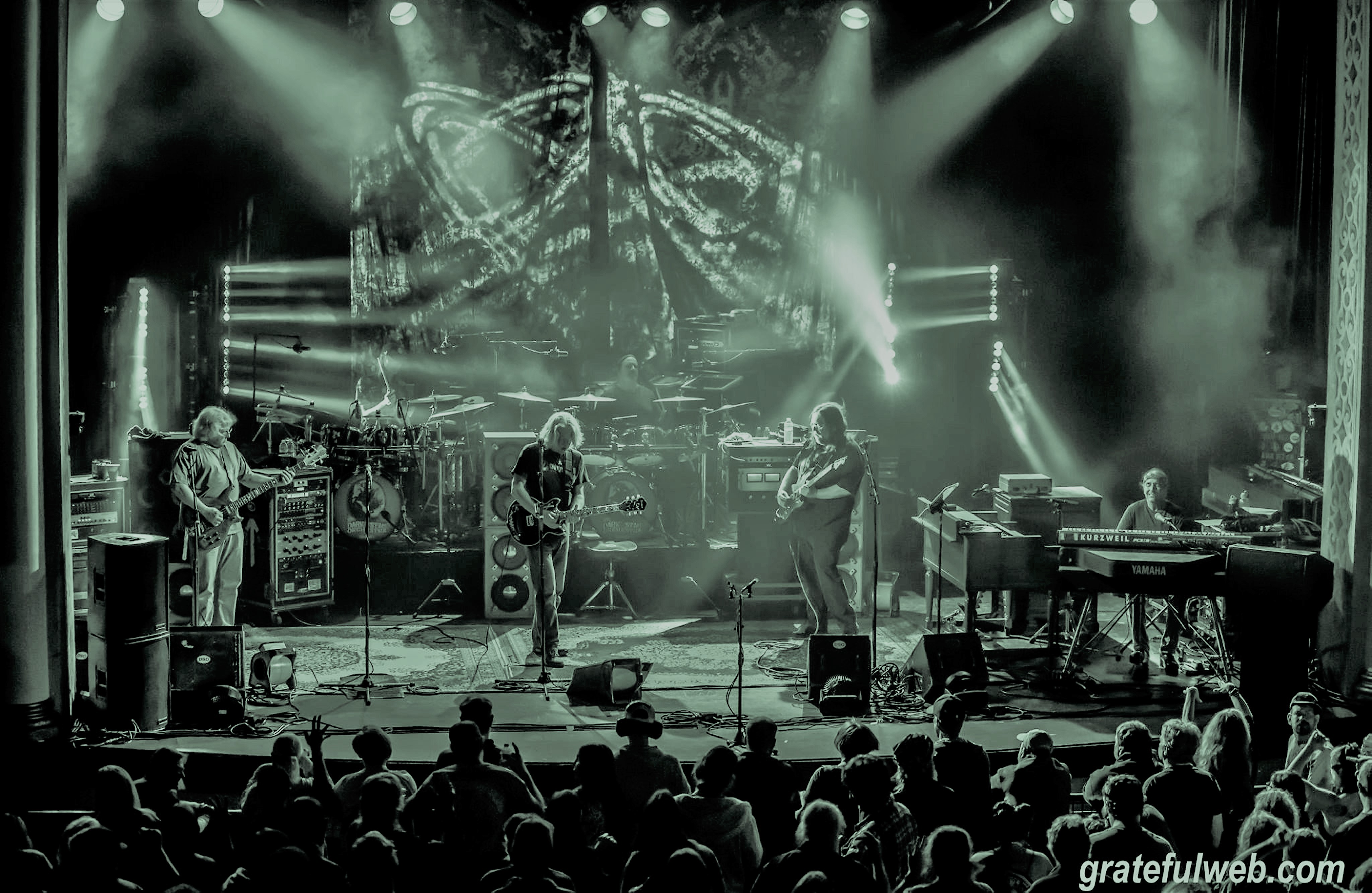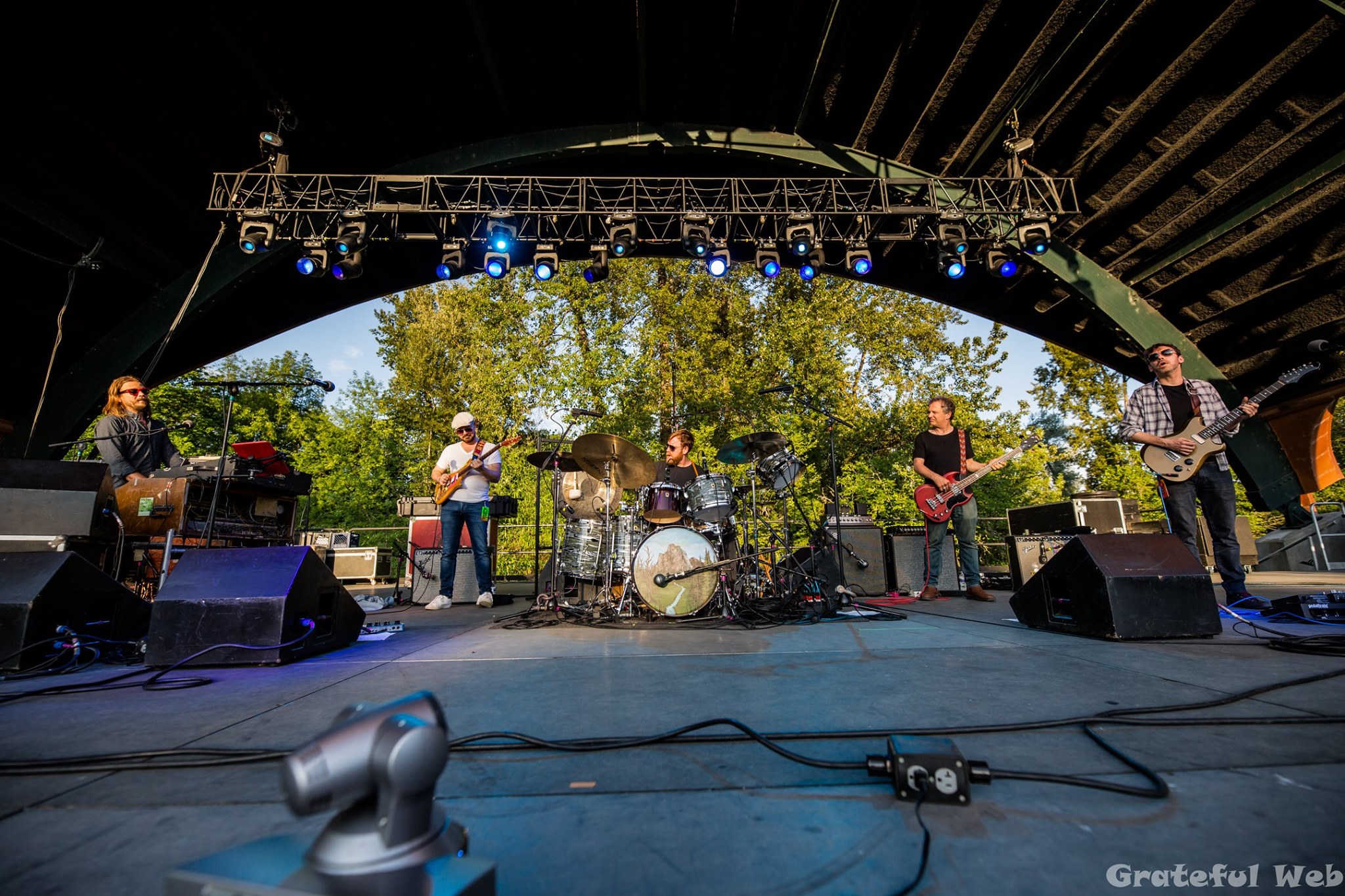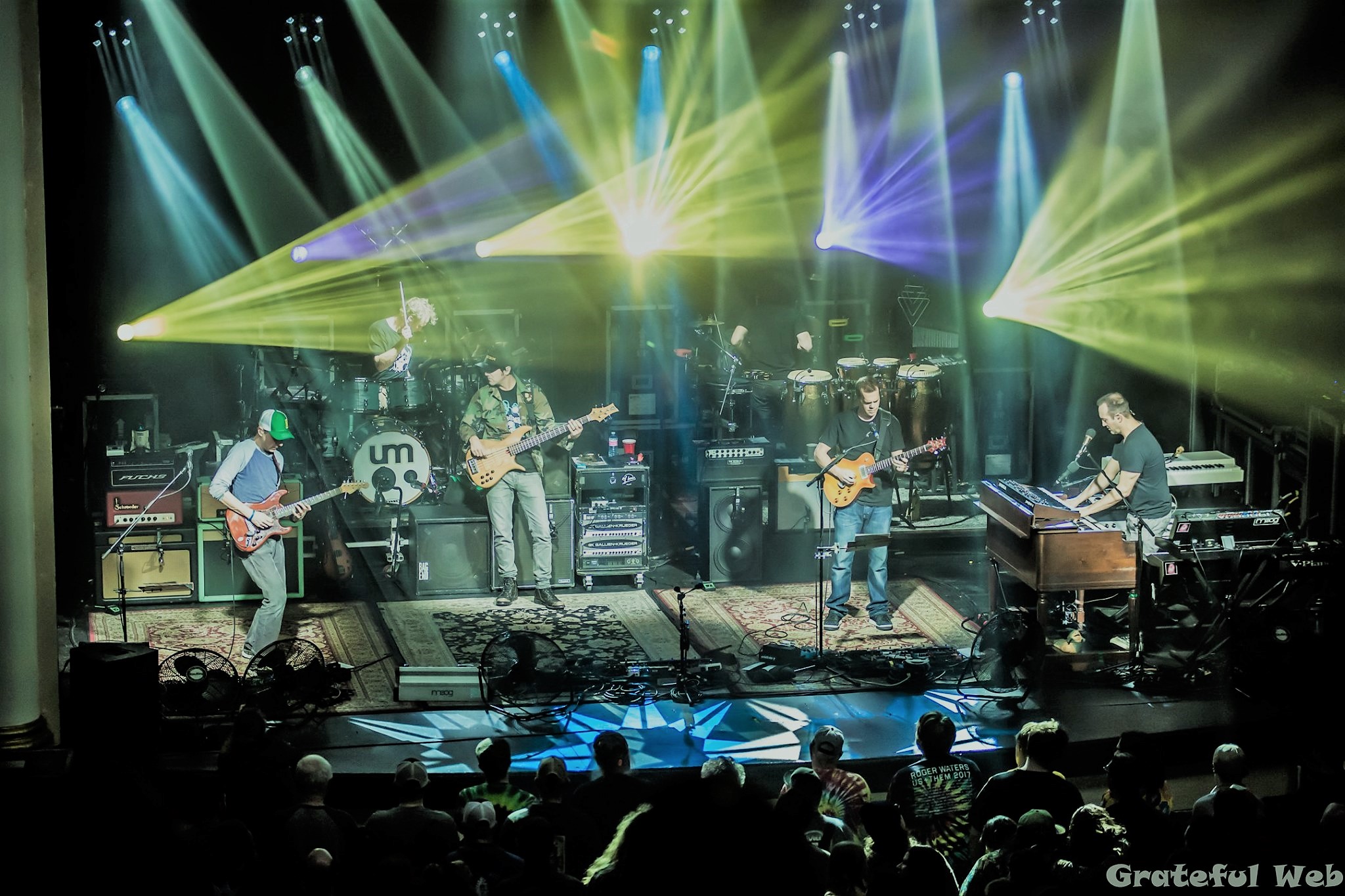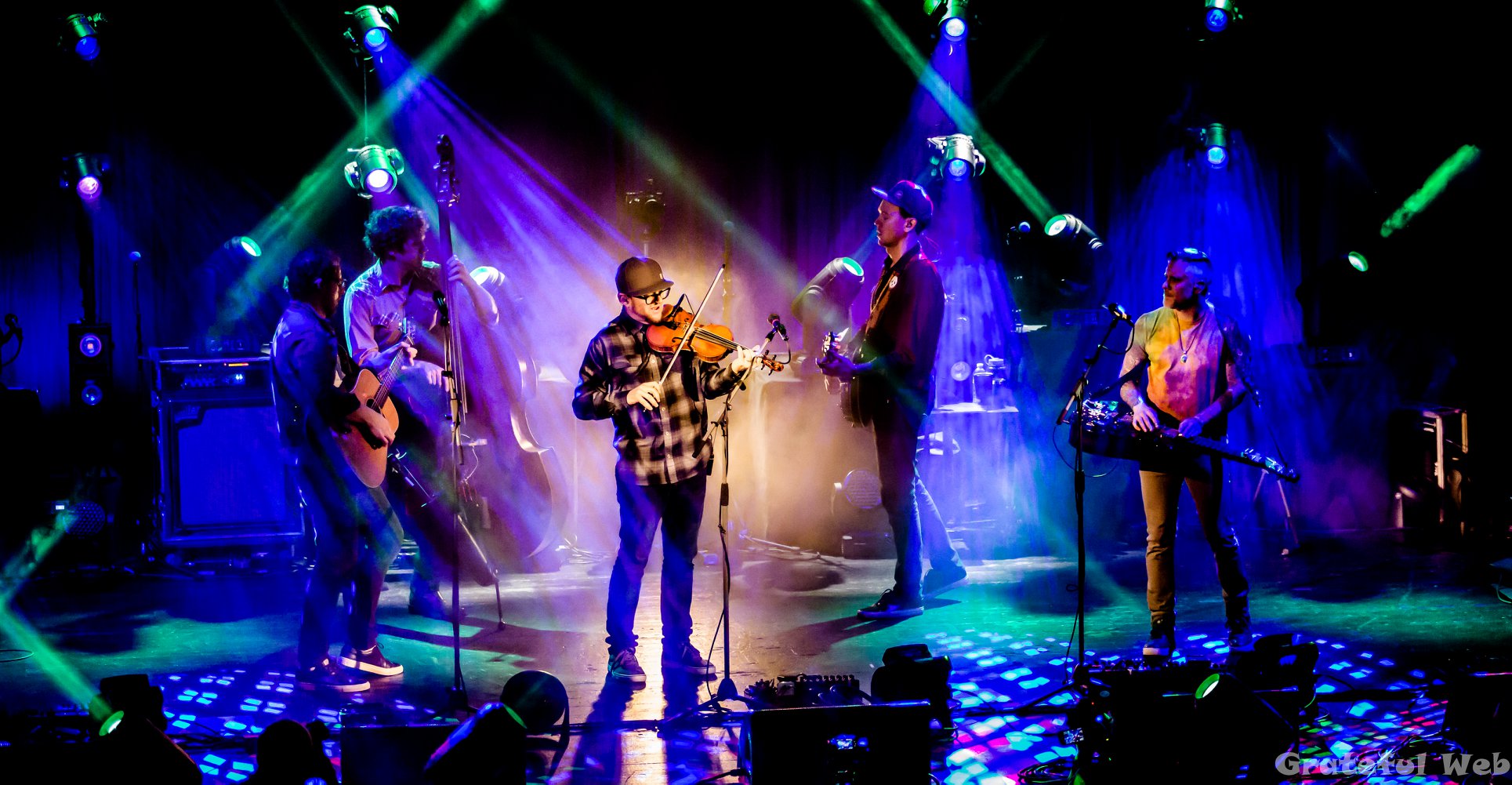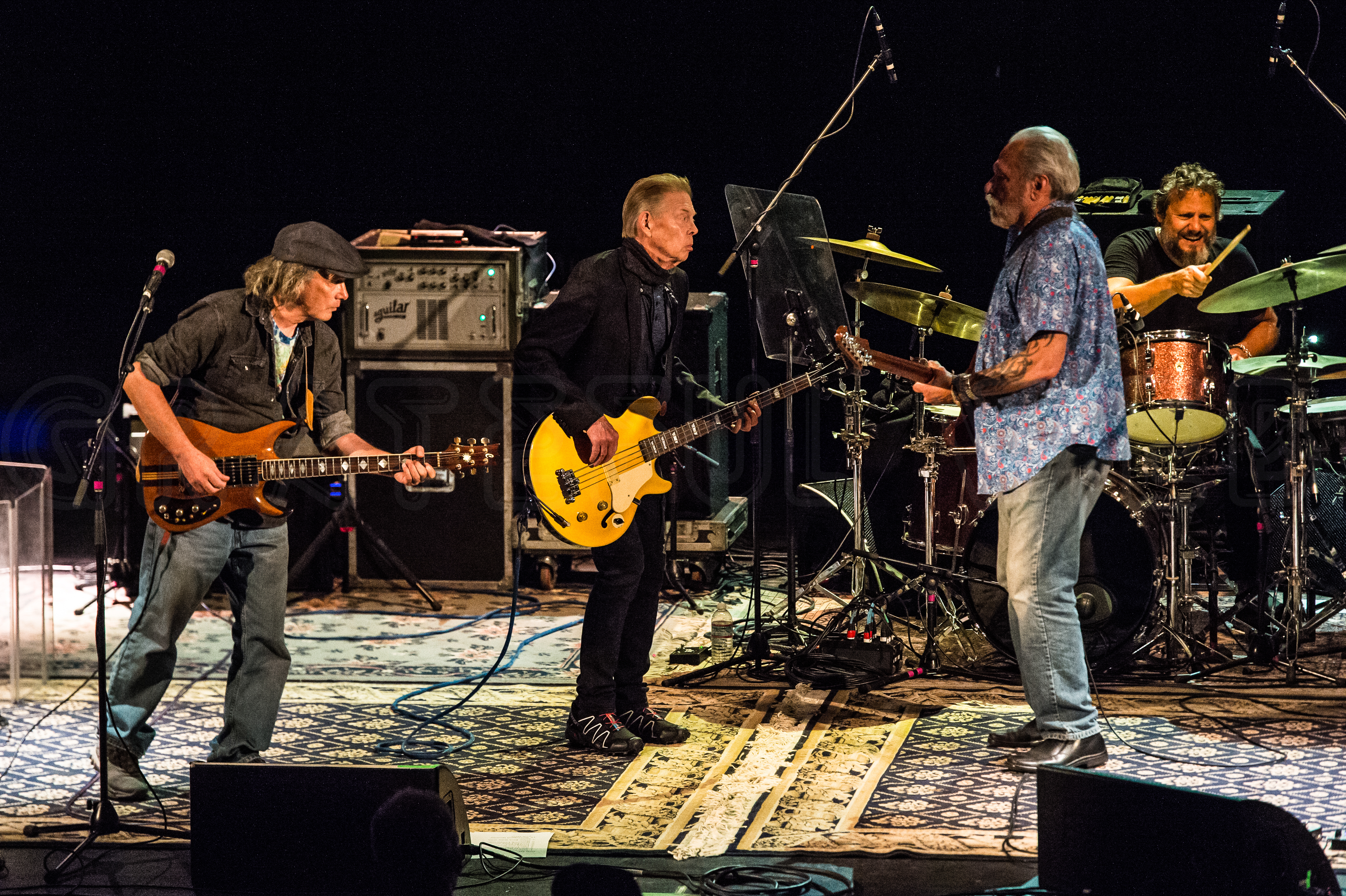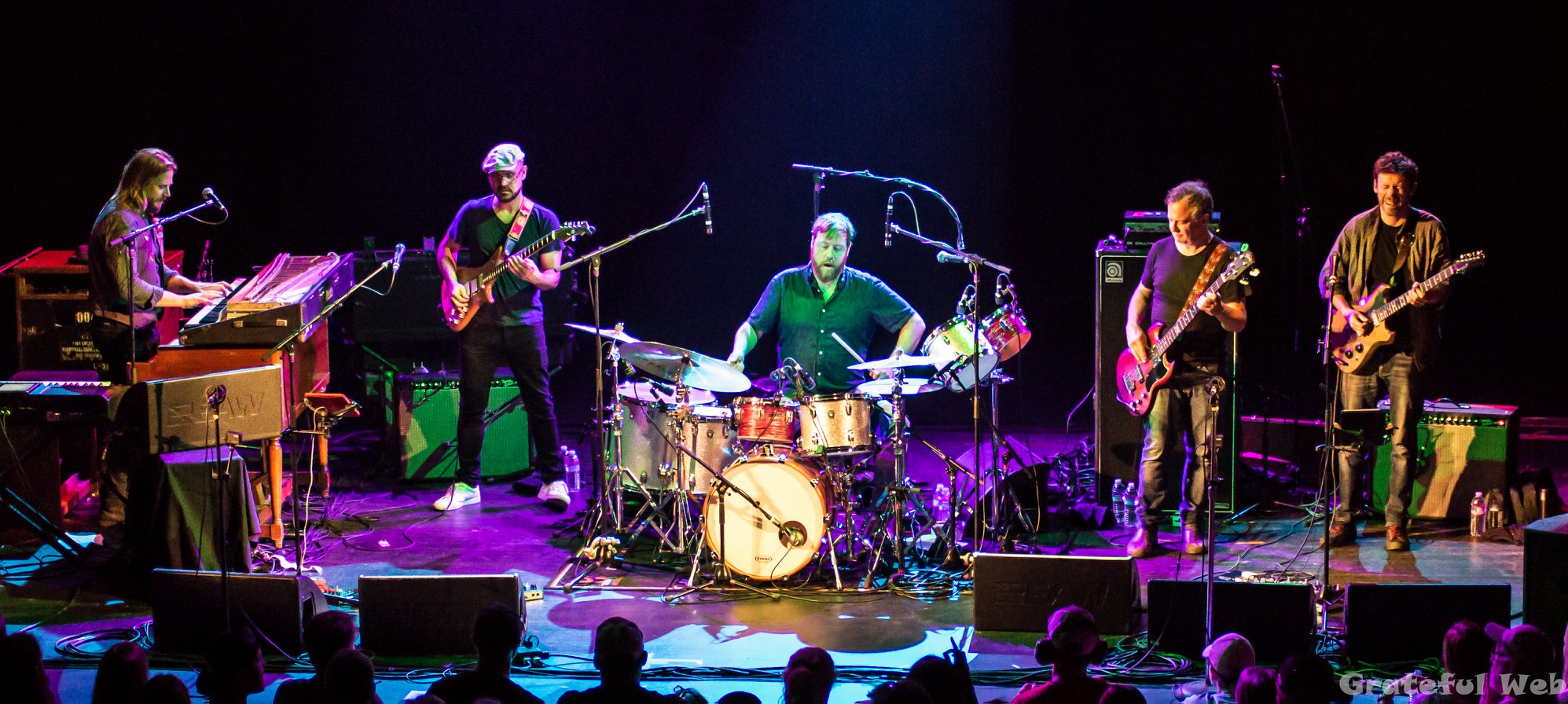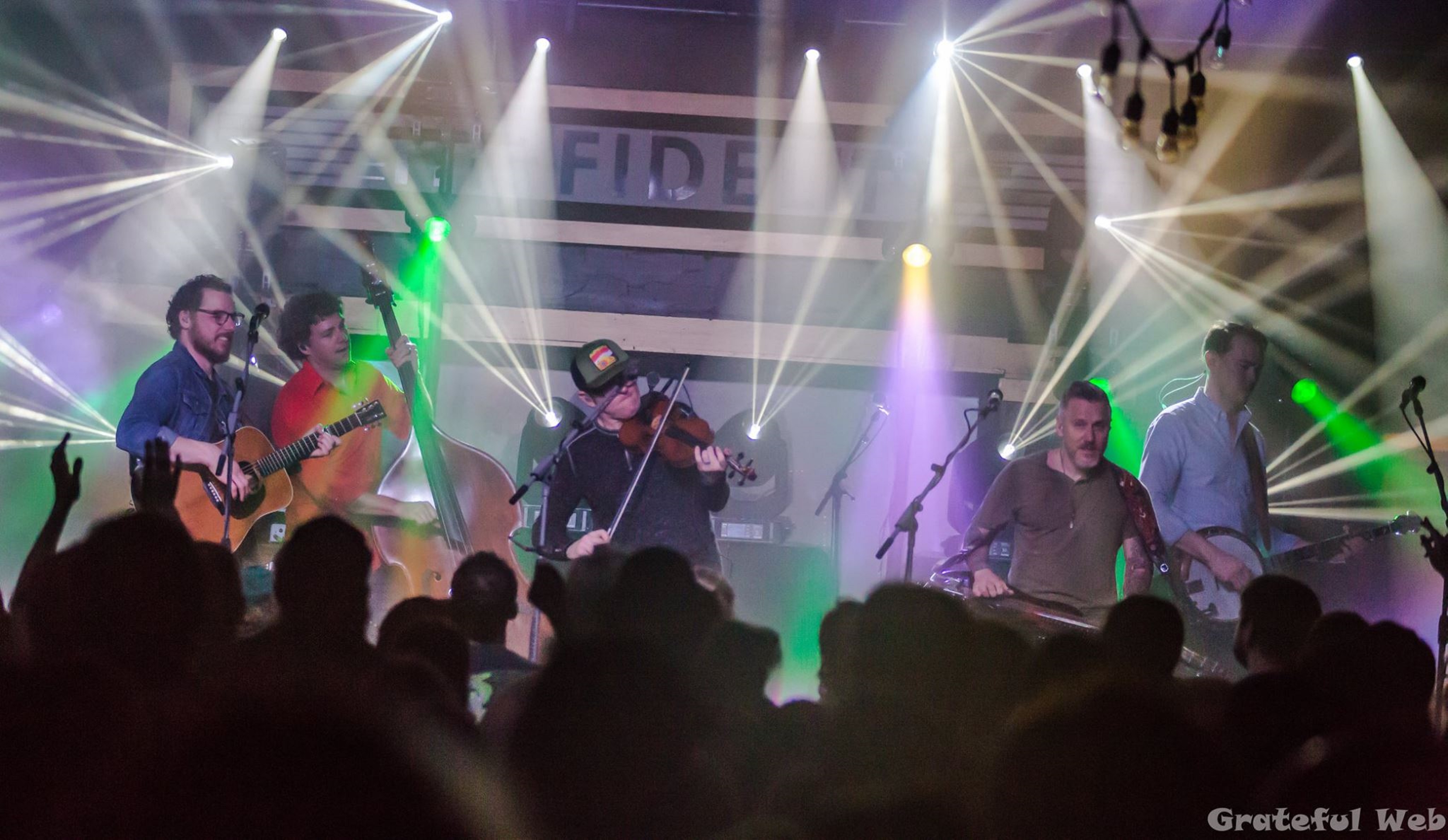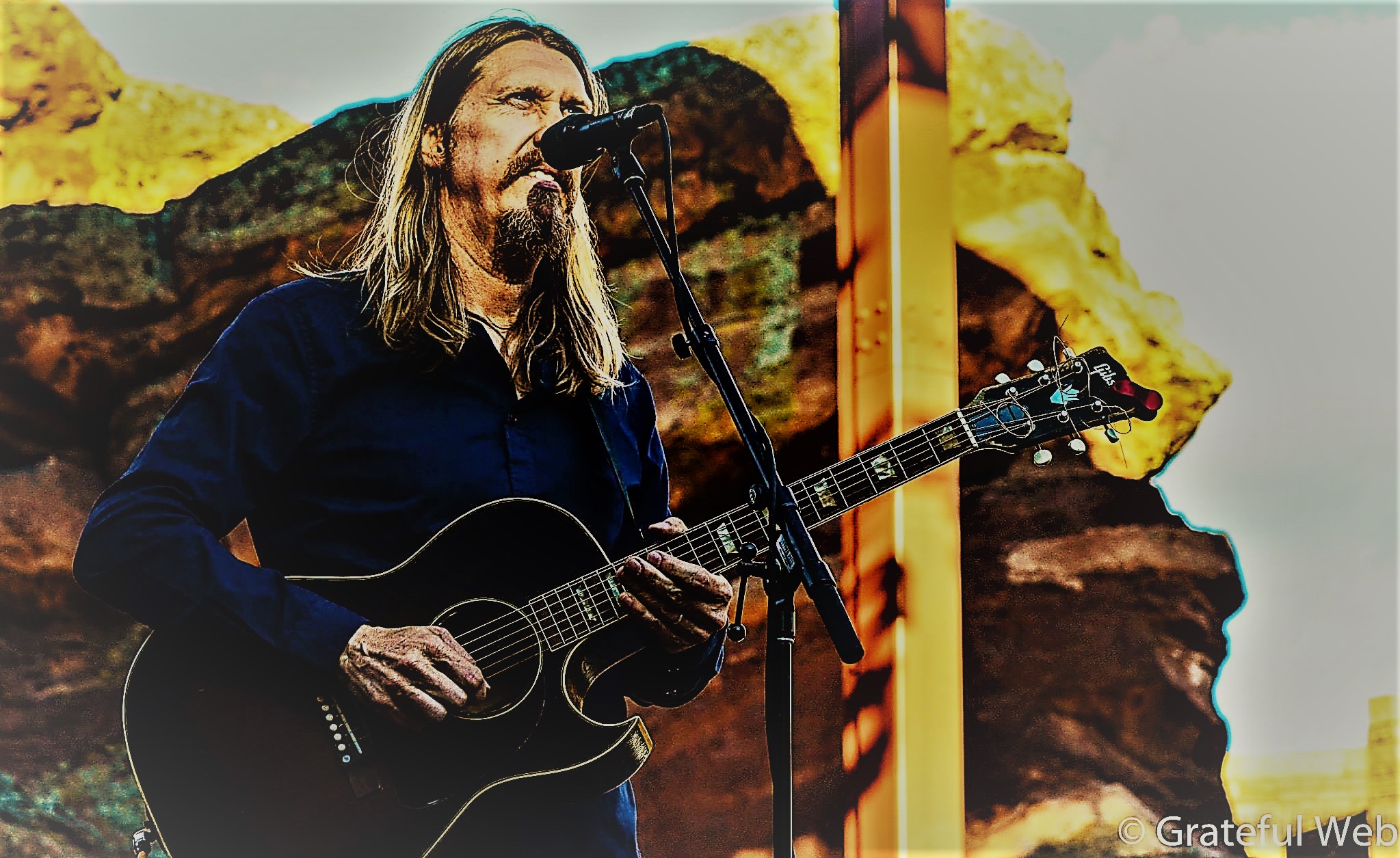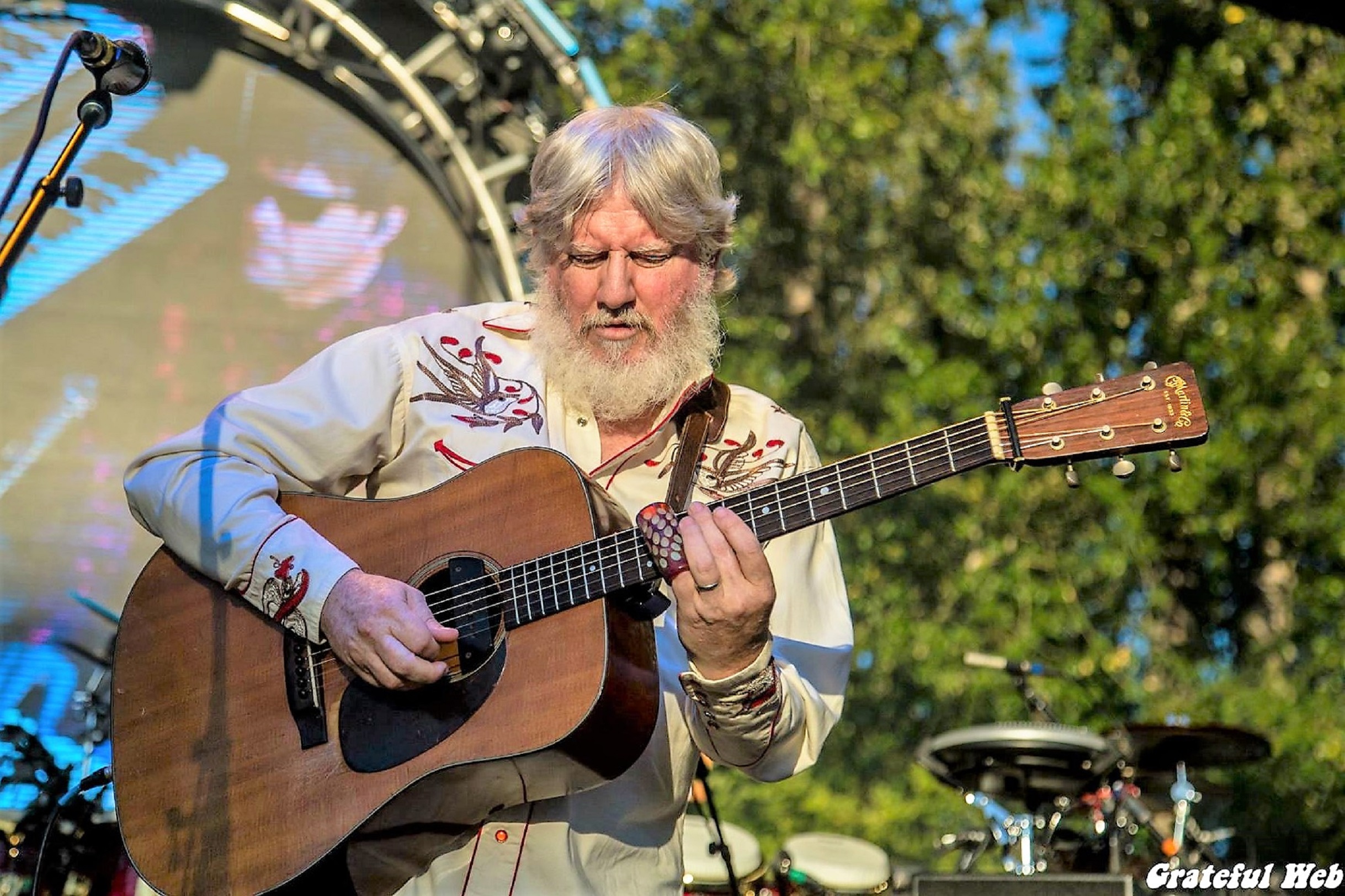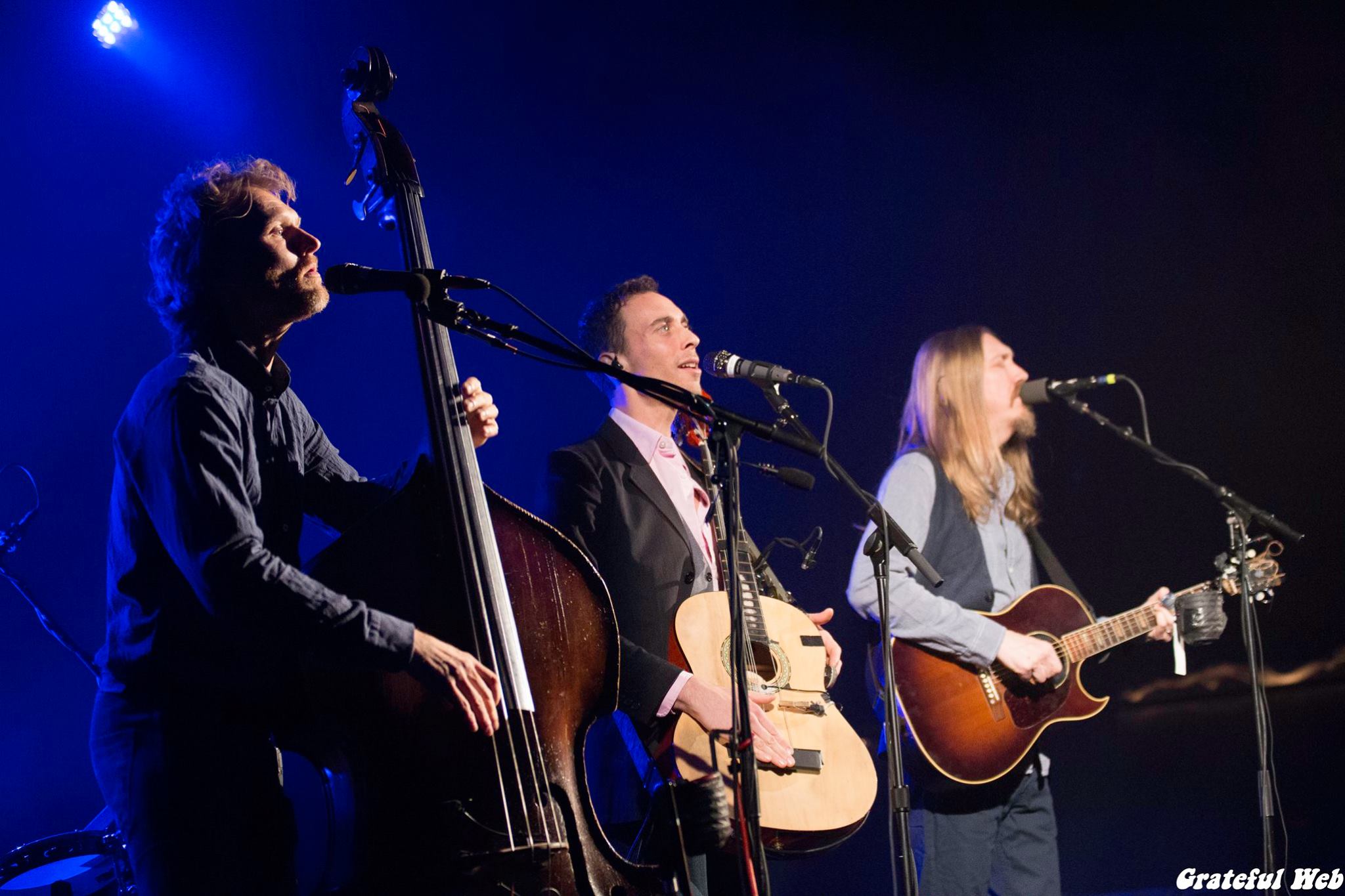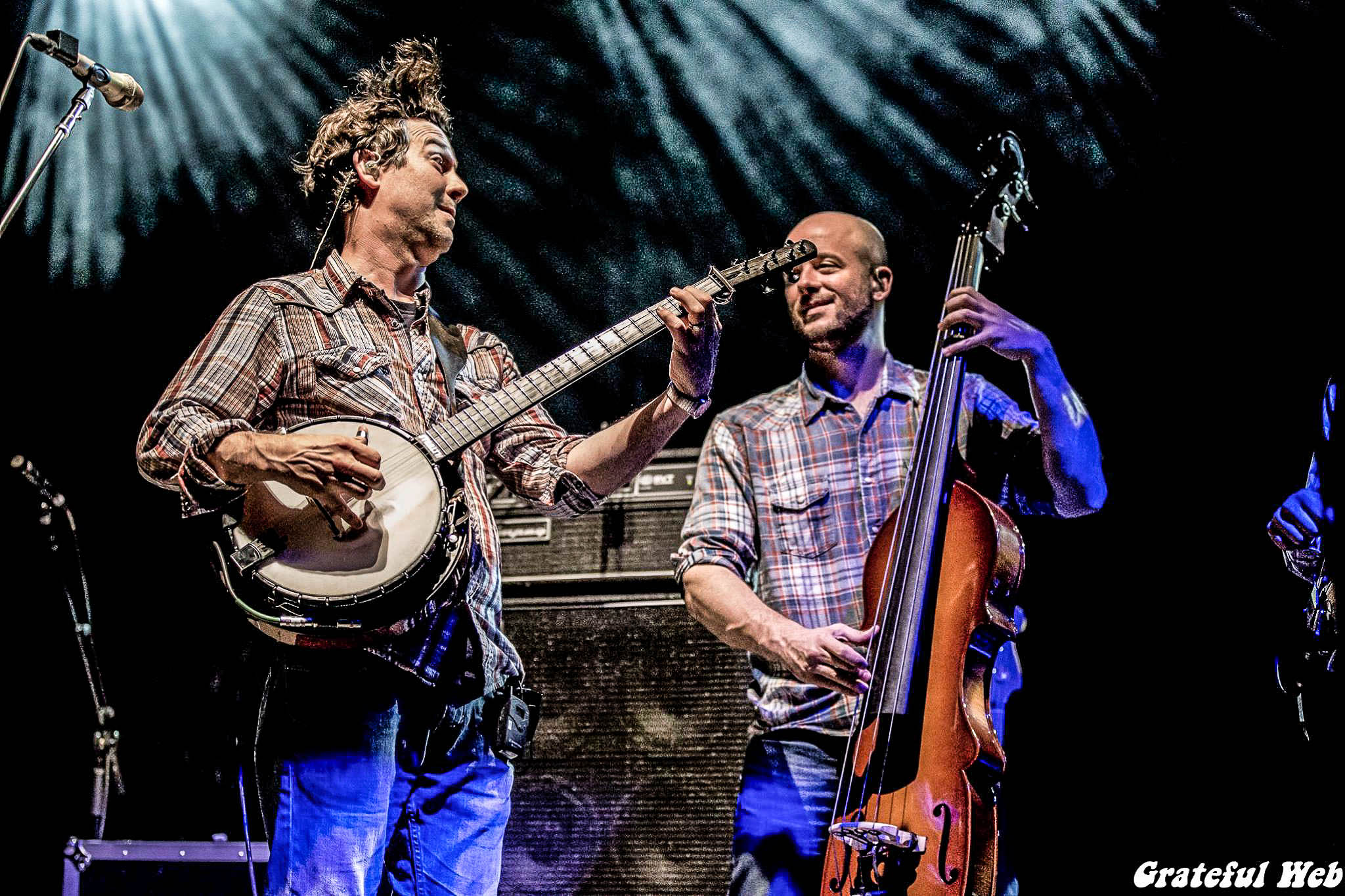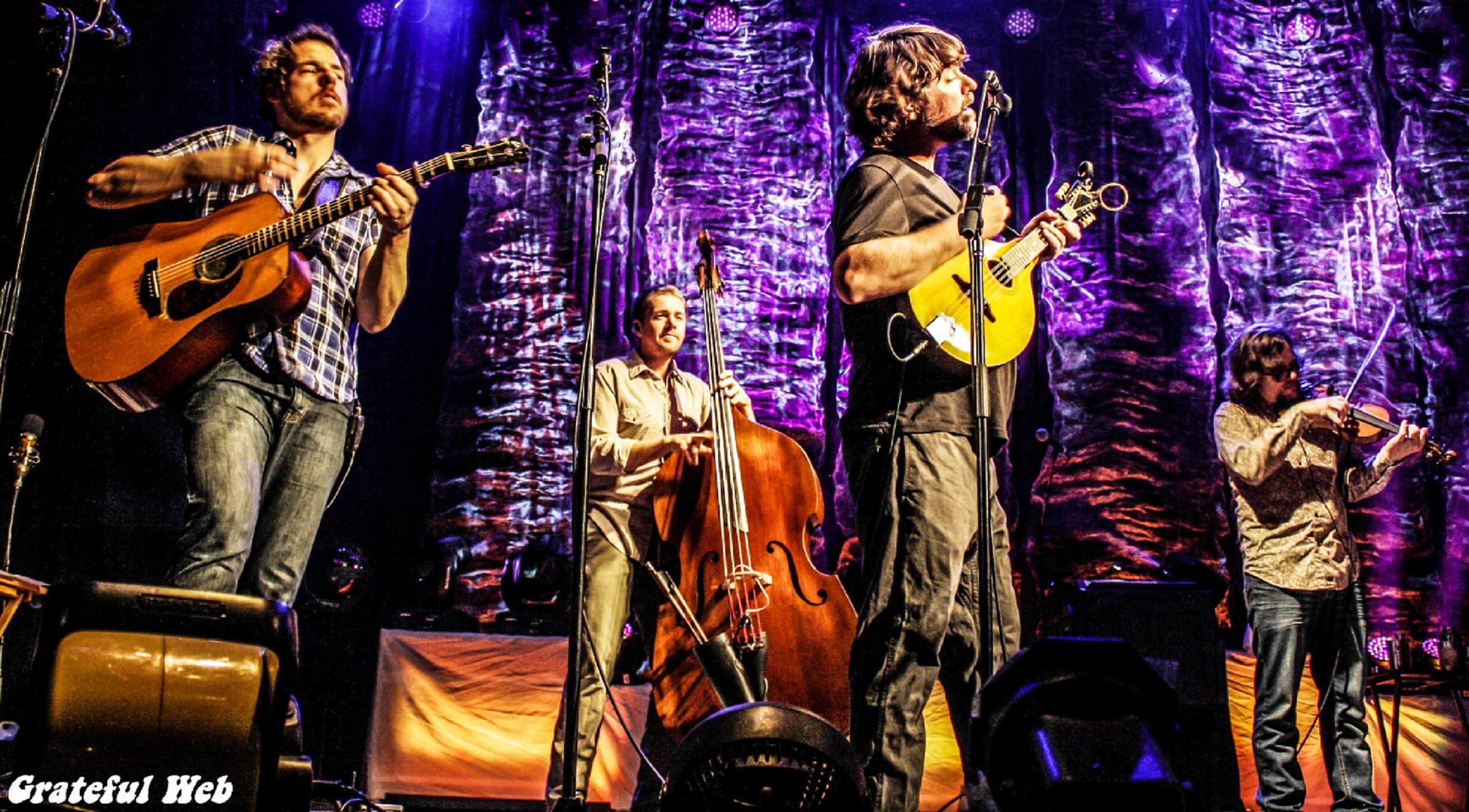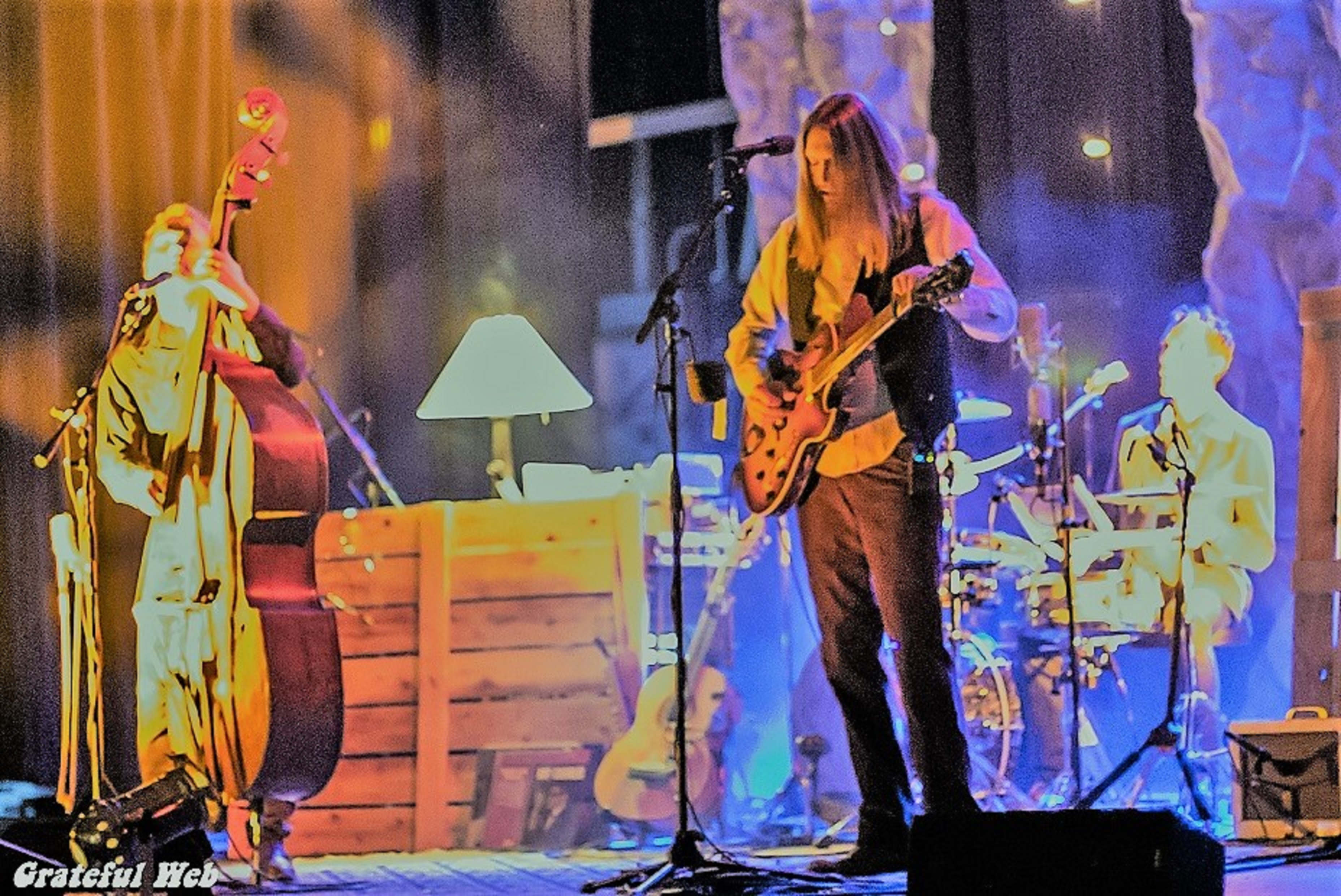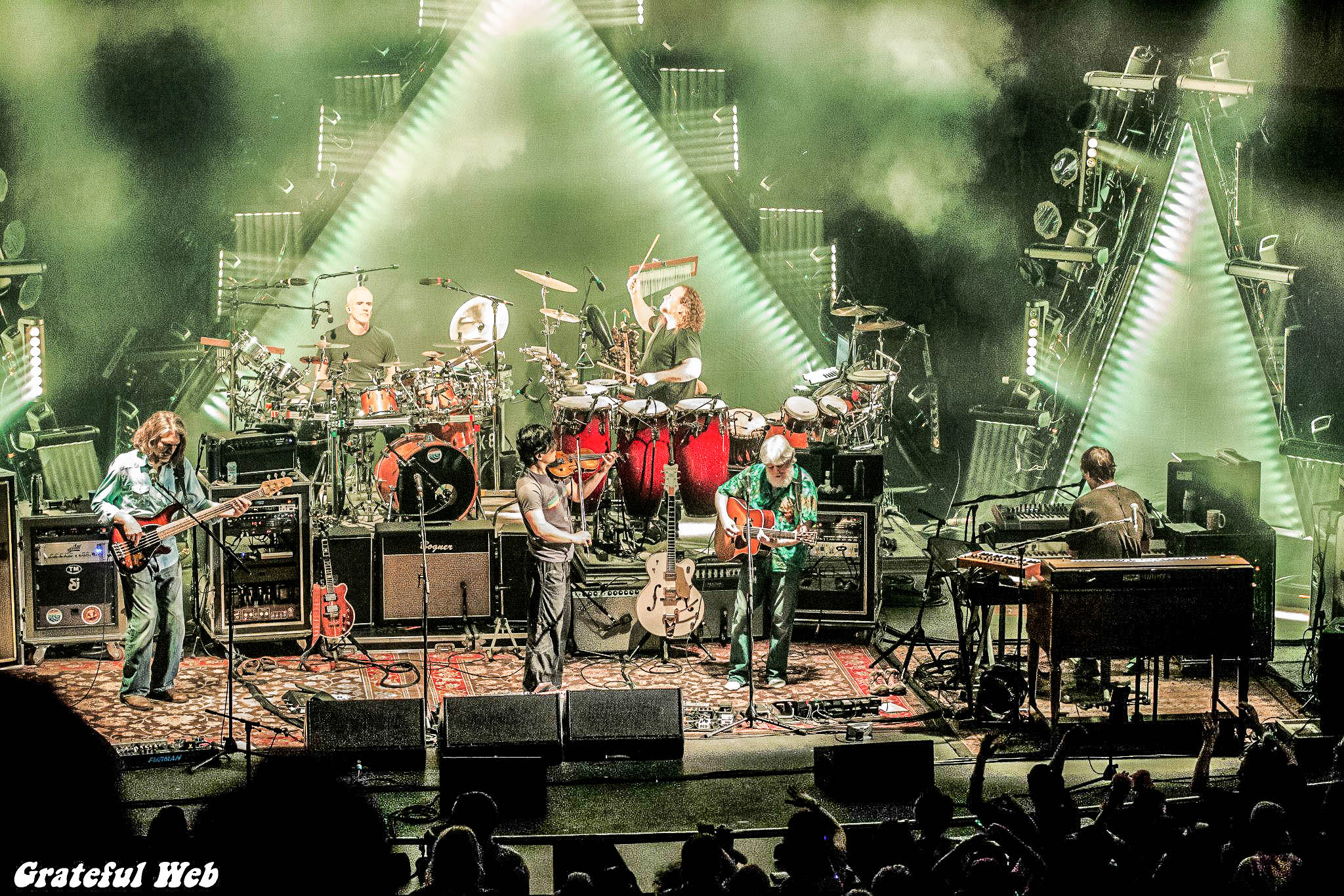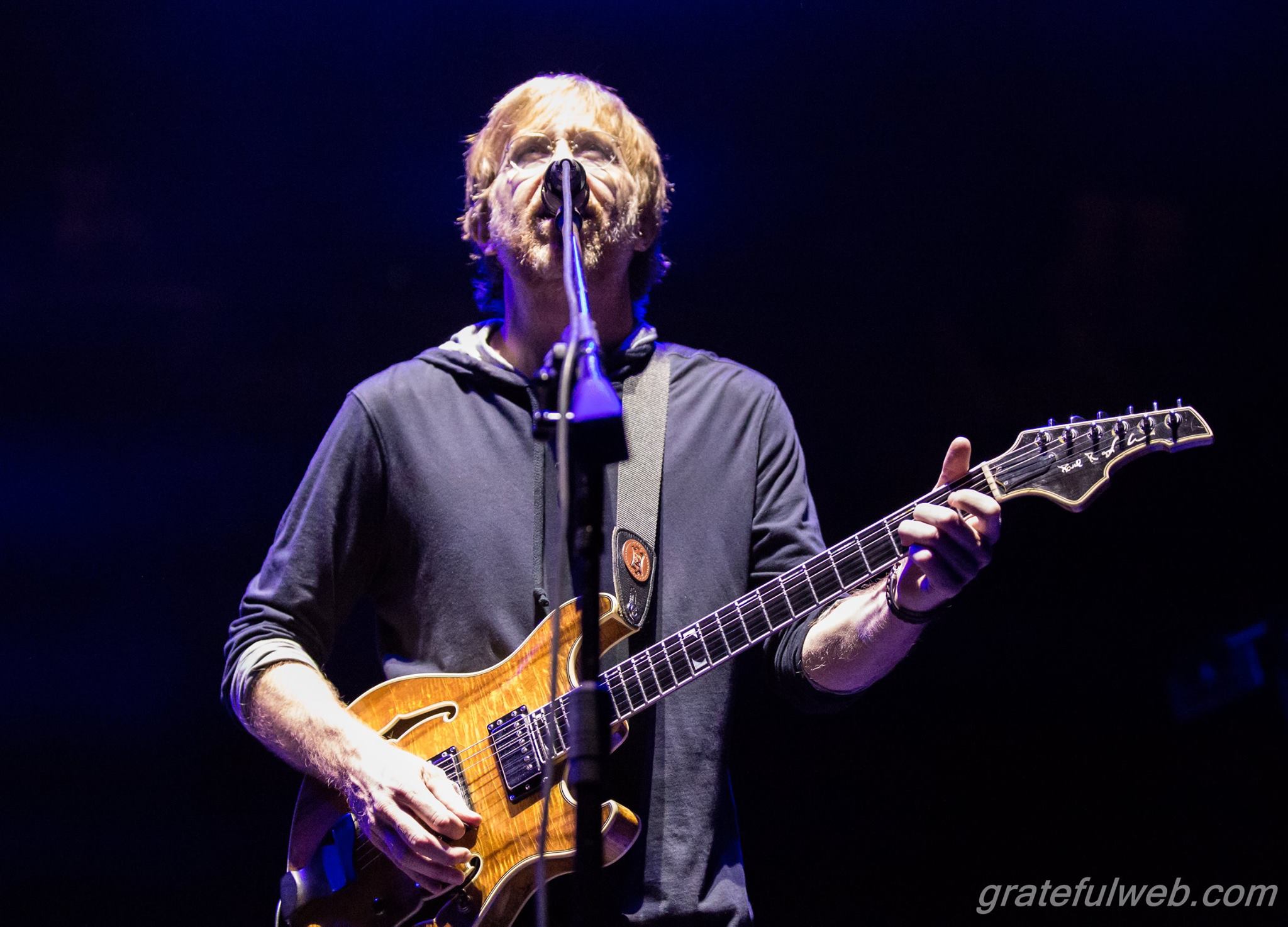Dark Star Orchestra came “high-stepping” into Eugene (Ore.) last Monday night and fulfilled their bold promise to “continue the Grateful Dead concert experience” which is no easy feat. A substantial, multi-generational crowd of familiar faces gathered to glow wild and celebrate the reawakening. It’s long been said, “there’s nothing quite like a Grateful Dead show,” but Dark Star Orchestra skillfully produced two satisfying, soul-cleansing sets at the McDonald Theater that thoroughly convinced the amenable patrons “the music never stopped.”
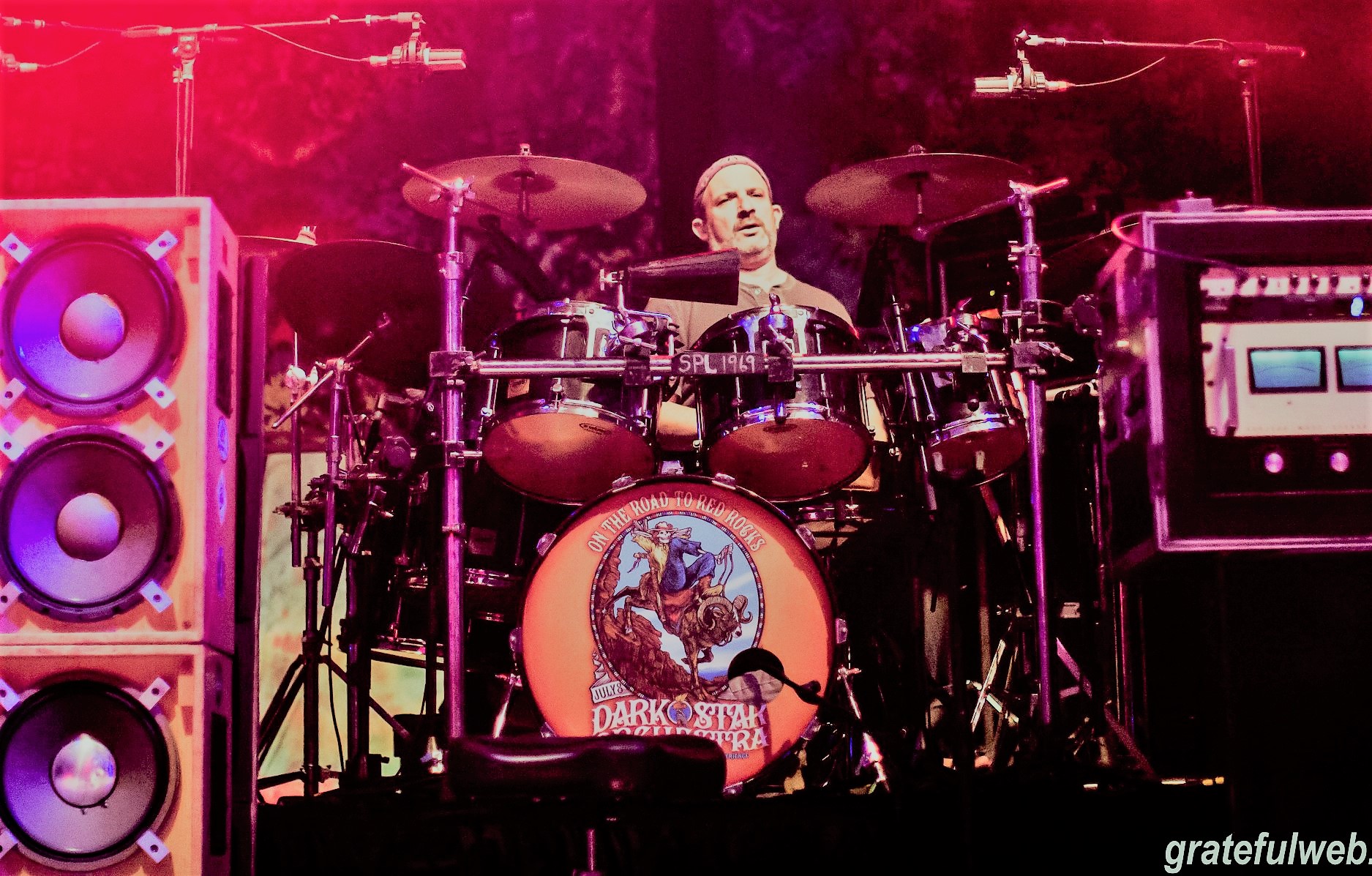
Dark Star Orchestra is known in the Dead community for recreating specific concerts from GD’s long career, duplicating set lists, sounds, and personnel from the band’s many sonically distinctive periods. DSO first gained attention by bringing everyone’s favorite bootleg recordings to life, presenting historic musical documents in a real-time, live performance setting. In recent years, DSO has also mixed in “elective” sets comprised of their own choices.
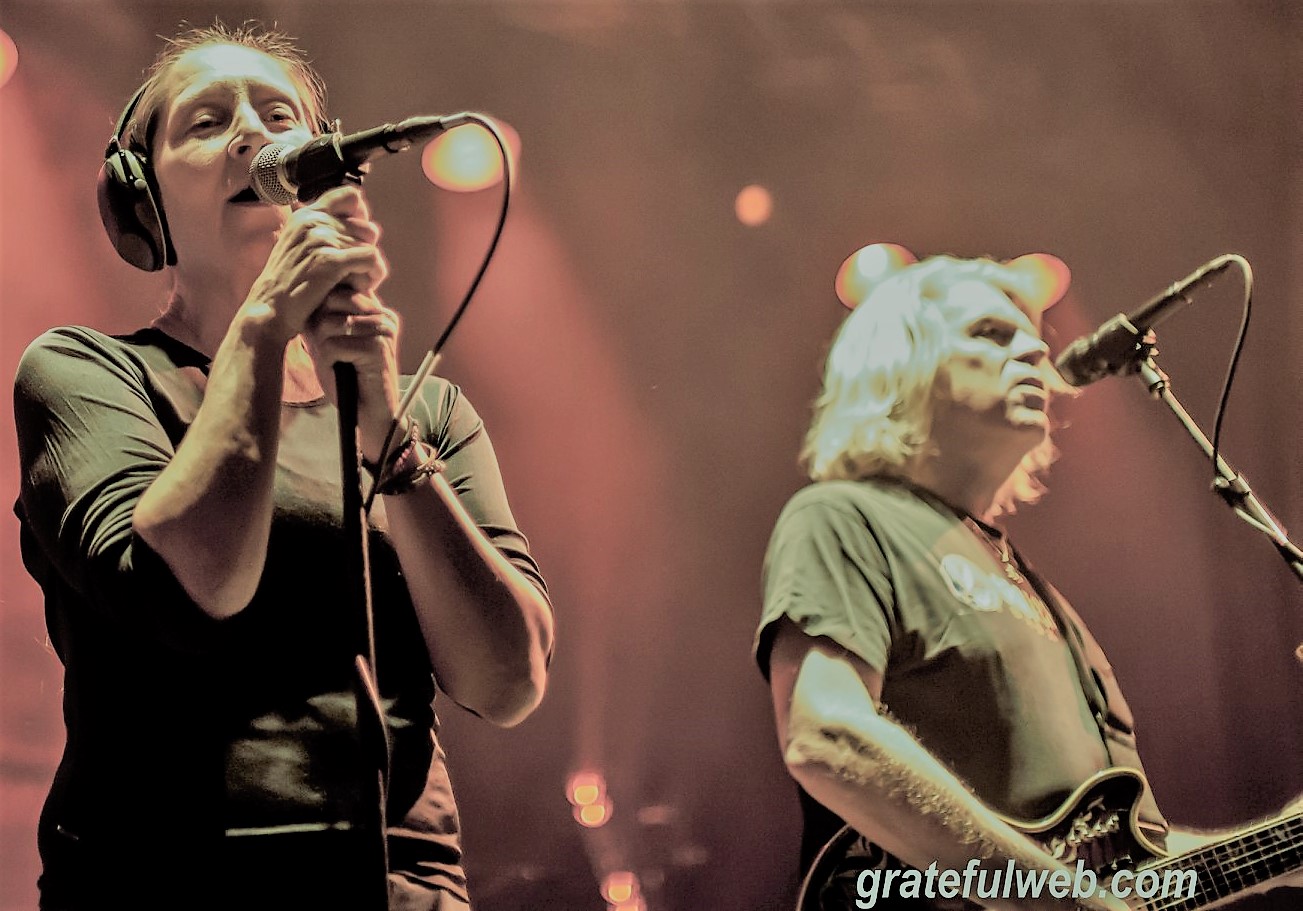
The start of last Monday’s show strongly hinted at post-Pigpen, Keith and Donna-era Dead. The soulful presence of vocalist Lisa Mackey and the bright, electric piano of Rob Barraco were obvious indicators. The classic “Jack Straw” opener embraced the expectant crowd like a comforting hug from an old friend, a rush of warm remembrance. A triumphant “Ramble on Rose” followed with the welcome assurance— “I know this song it ain’t never gonna end!” All systems screamed “Go,” as both the band and brethren prepared to launch.
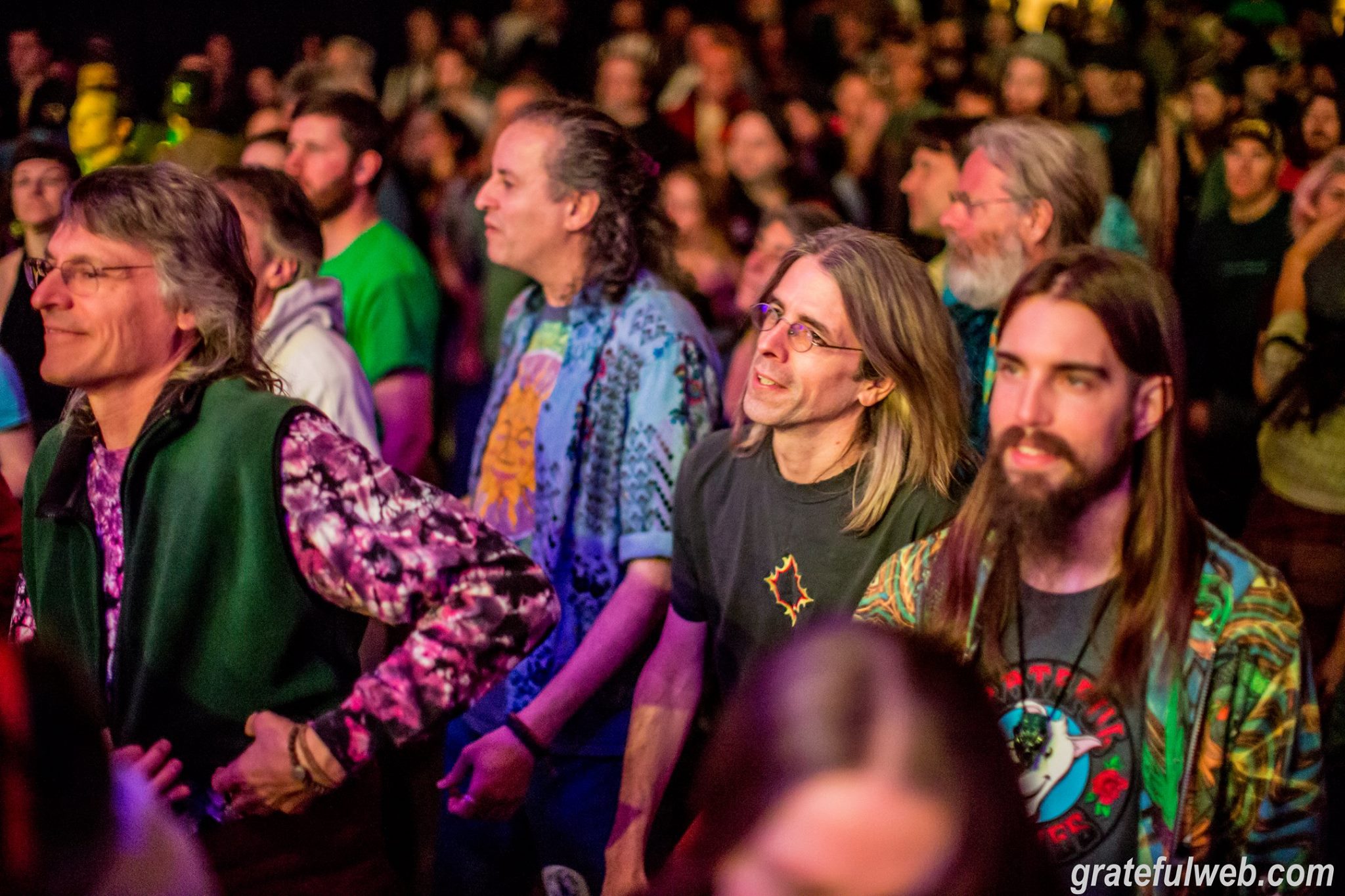
“The Race Is On,” a thumping, rockabilly cover made famous by George Jones, kept the Heads stomping and nodding approvingly. The relative rareness of the tune, GD only played it 58 times, added to its appeal and had more than a few fans initially guessing we were at a vintage 1973 show. DSO was using both of their drummers, Dino English and Rob Koritz, on Monday night, however, and Mickey Hart wasn’t with the Dead in ’73. What could it mean? Did they play “Race” with Keith and Donna after “73?
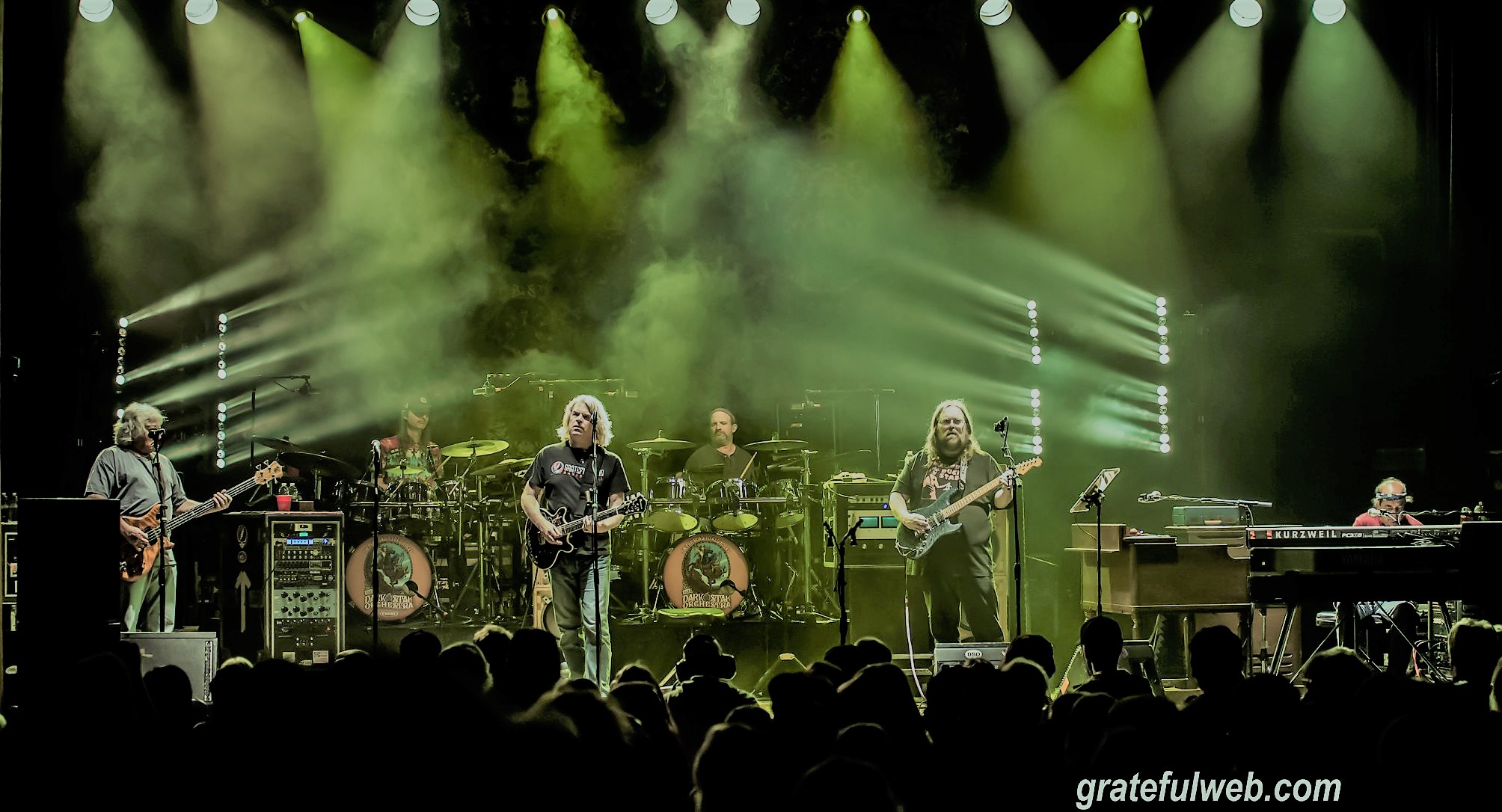
The next cut kicked the cat out of the bag and cracked wide grins across the crowd’s faces. For the first time since 2009, DSO played the early 1990’s Robert Hunter/Jerry Garcia composition, “Liberty.” The tune originally appeared as the title track on Hunter’s 1988 solo record, but was later reworked by Garcia and slated for inclusion on the Dead’s last, unfinished (and unreleased) album. A largely overlooked and underappreciated song from the final stage of the Dead’s career, “Liberty” effectively illustrates the contrarian brand of individualism so inherent in the band, and Garcia specifically. The lyric describes a free spirit driven to defy convention and “find my own way,” for better or worse. Despite the nine years between performances, DSO showed no discernable rust and delivered a confident reading that captured the sarcastic nuance Garcia often applied. By jumping ahead several chapters in the Dead’s songbook, and digging deep in their own repertoire, Dark Star Orchestra cleverly utilized “Liberty” to signal a set of their own unique design.
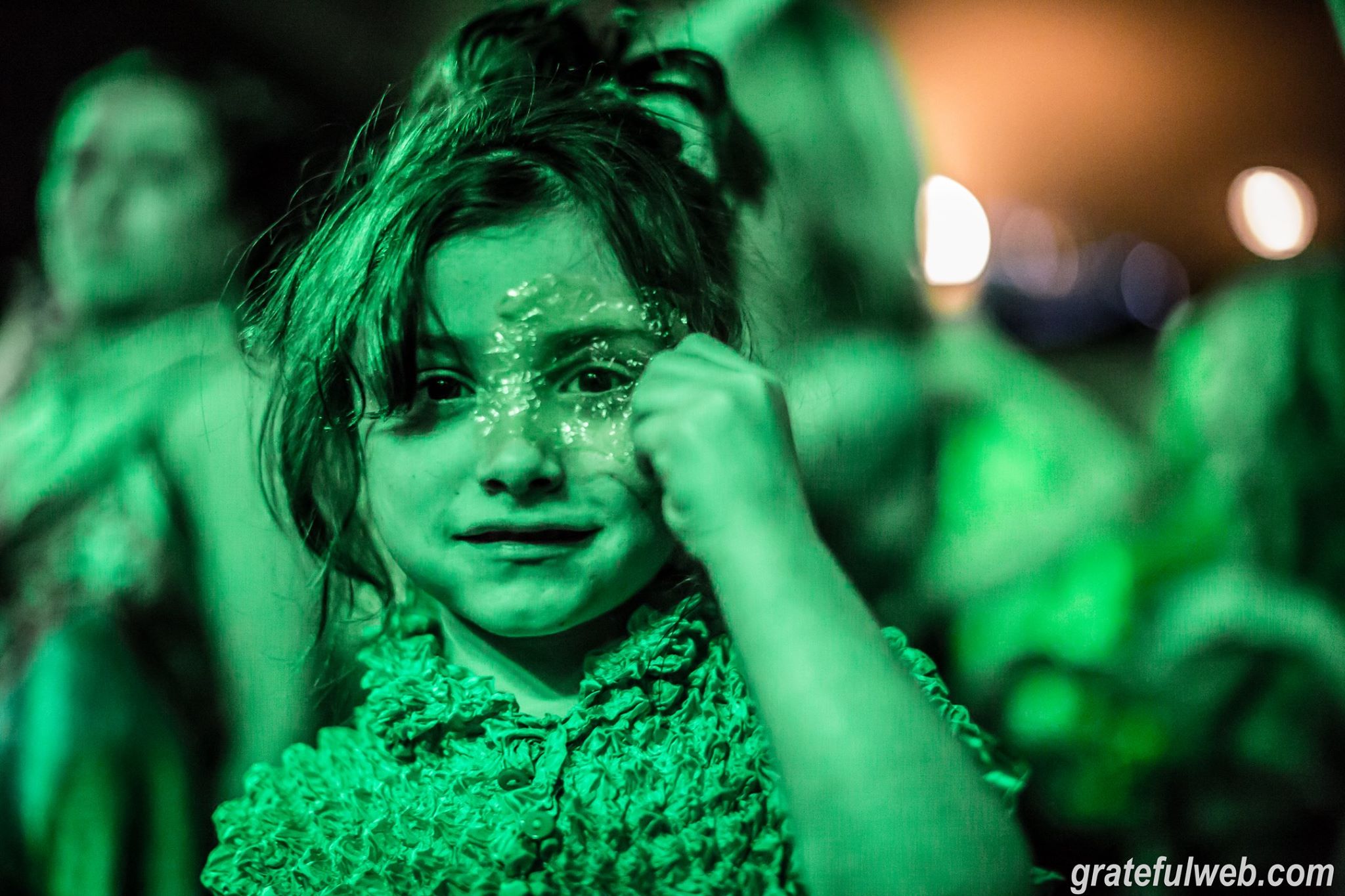
Now working without the map of a past performance, DSO moved even closer to “continuing the Grateful Dead concert experience.” Spontaneity is an elemental feature of the Dead ethos. DSO treated the McDonald Theater patrons to the unique excitement of not knowing what amazing thing was going to happen next. Fans were free to wish for and imagine any sublime possibility. DSO’s first set continued to favor the bouncy, round-bottomed tones and pastel colors of mid-to-late seventies Dead. Jazz, rhythm & blues, gospel, and country cosmically fused into a singular, distinctively American sound.
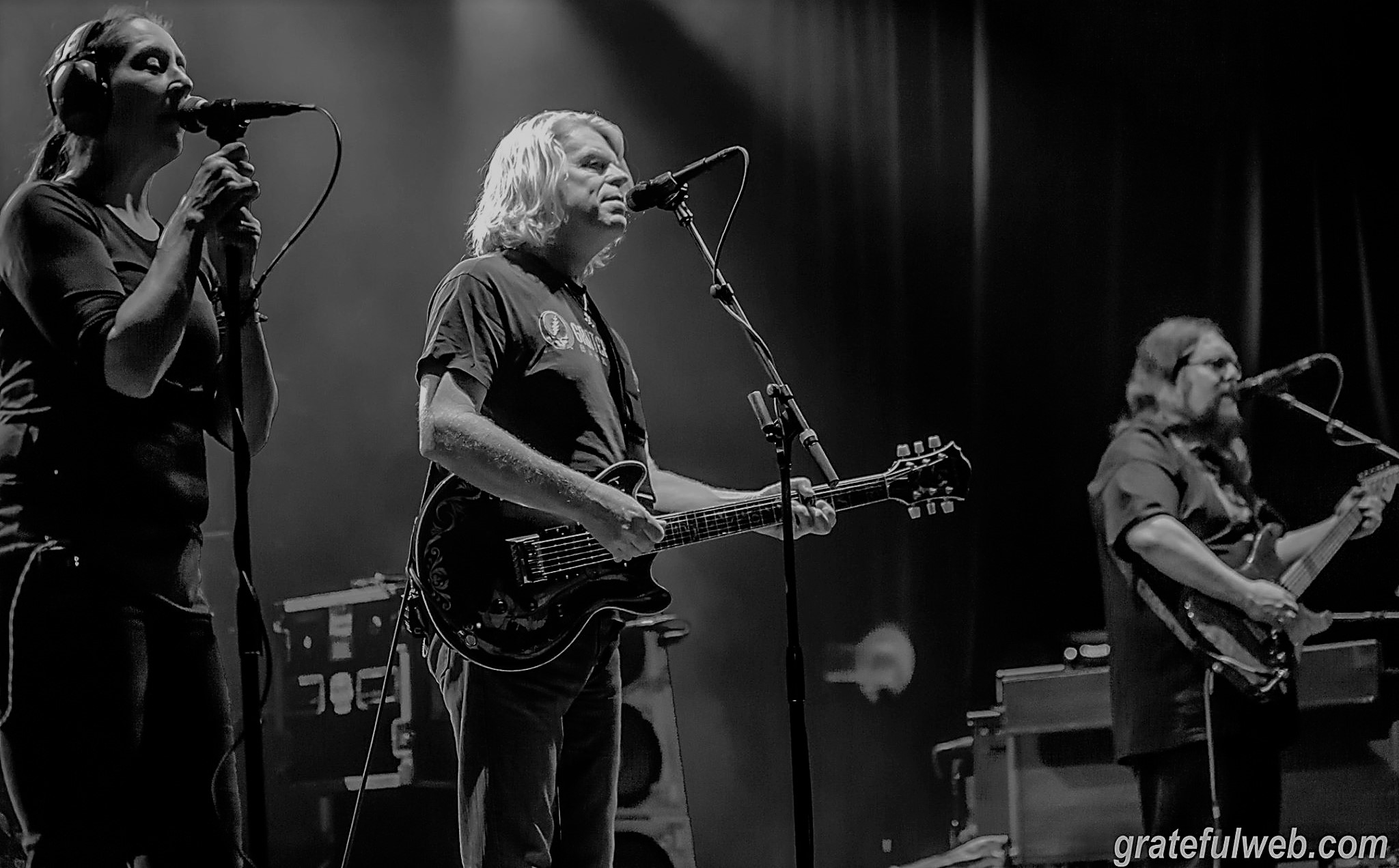
Mackey provided a beautiful highlight with a stirring version of Donna Godchaux’s “Sunrise,” another undervalued and rarely played nugget from the Dead’s deep catalog. The song is widely believed to be at least somewhat about longtime Grateful Dead crew member, Rex Jackson, who died in 1976. Many Eugene fans at last Monday’s show were still grieving the recent passing of GD lyricist, John Perry Barlow and “Sunrise” seemed to gently acknowledge the loss of this beloved family member.
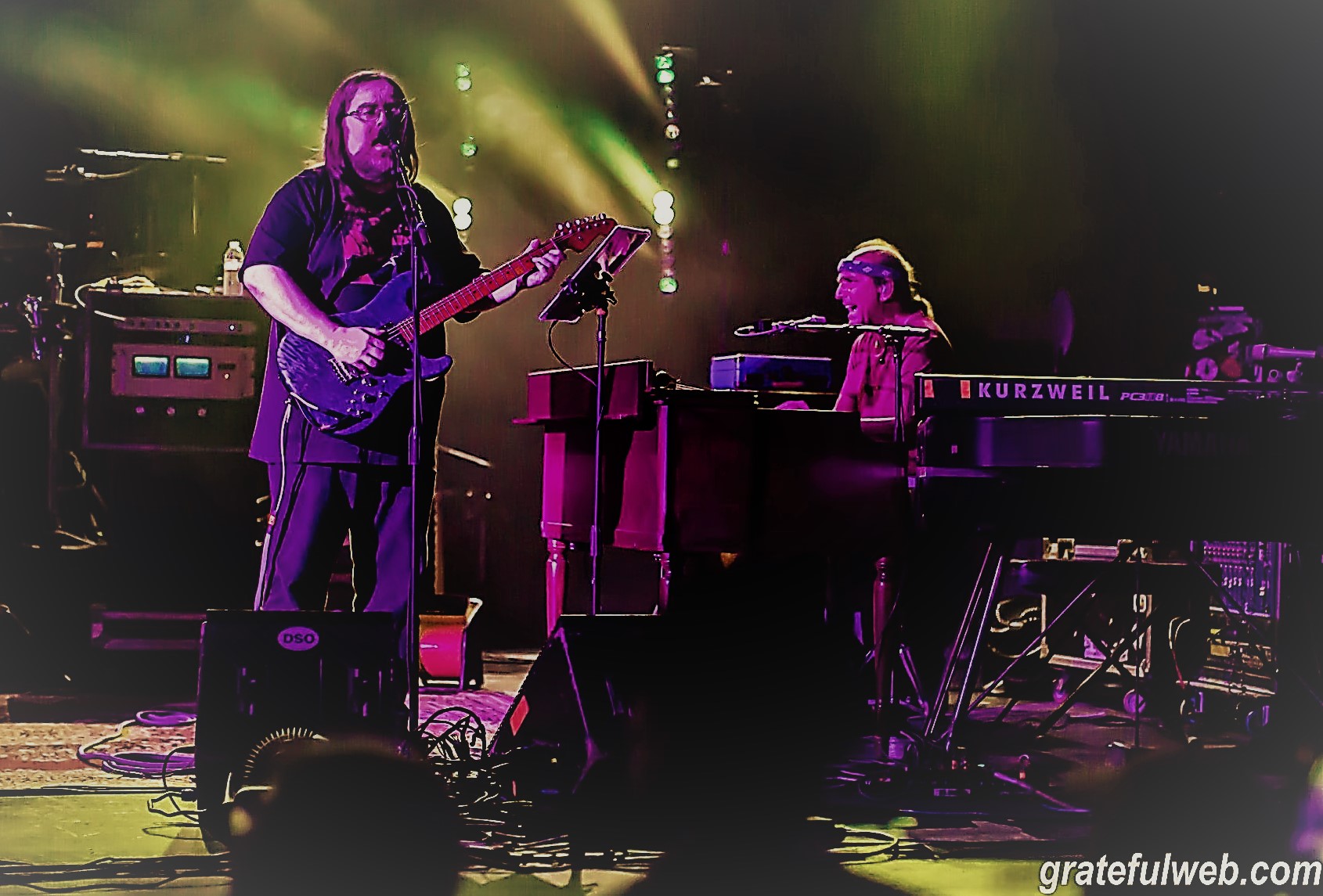
DSO offered another warm tribute to Barlow later in the set with the rare Jerry Garcia Band number, “Who Was John?” Performed by JGB only about 30 times in the mid-seventies, “Who Was John?” is a spine-tingling, call-and-response gospel that throbs with awe-inspiring glory. DSO’s lead guitarist/vocalist, Jeff Mattson rode the pulsing holy-roller for all it was worth, and the hymn’s religious imagery infused the theater with a heavy, spiritual vibe. DSO musically laid Barlow’s soul to rest: “Seal up your book old John/John don’t you write no more.”
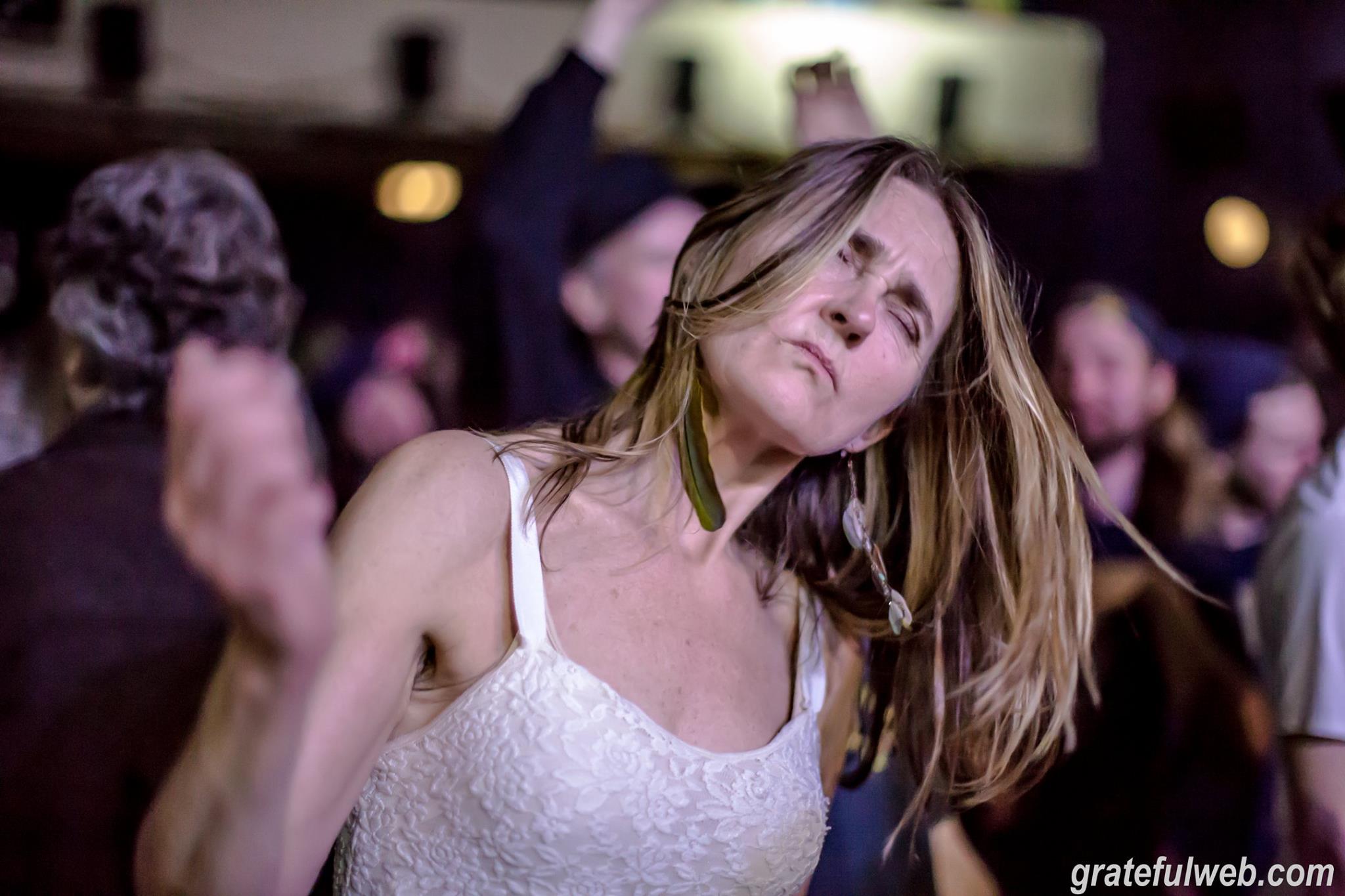
They fittingly ended the first set with a jubilant rendition of “The Music Never Stopped,” Barlow’s own loving portrait of “the band beyond description.” The song reverberated thematically throughout the evening’s festivities, hinting at how the Dead remain “alive” in the wake of so many, well, deaths. “People joining hand in hand while the music played the band.” The Grateful Dead didn’t invent the experience; the experience created the Dead. Their tales exist in a real folk tradition, shared and shaped to serve the needs of real folk. The tradition, the music, the show, the scene, the search for “Furthur” continues.
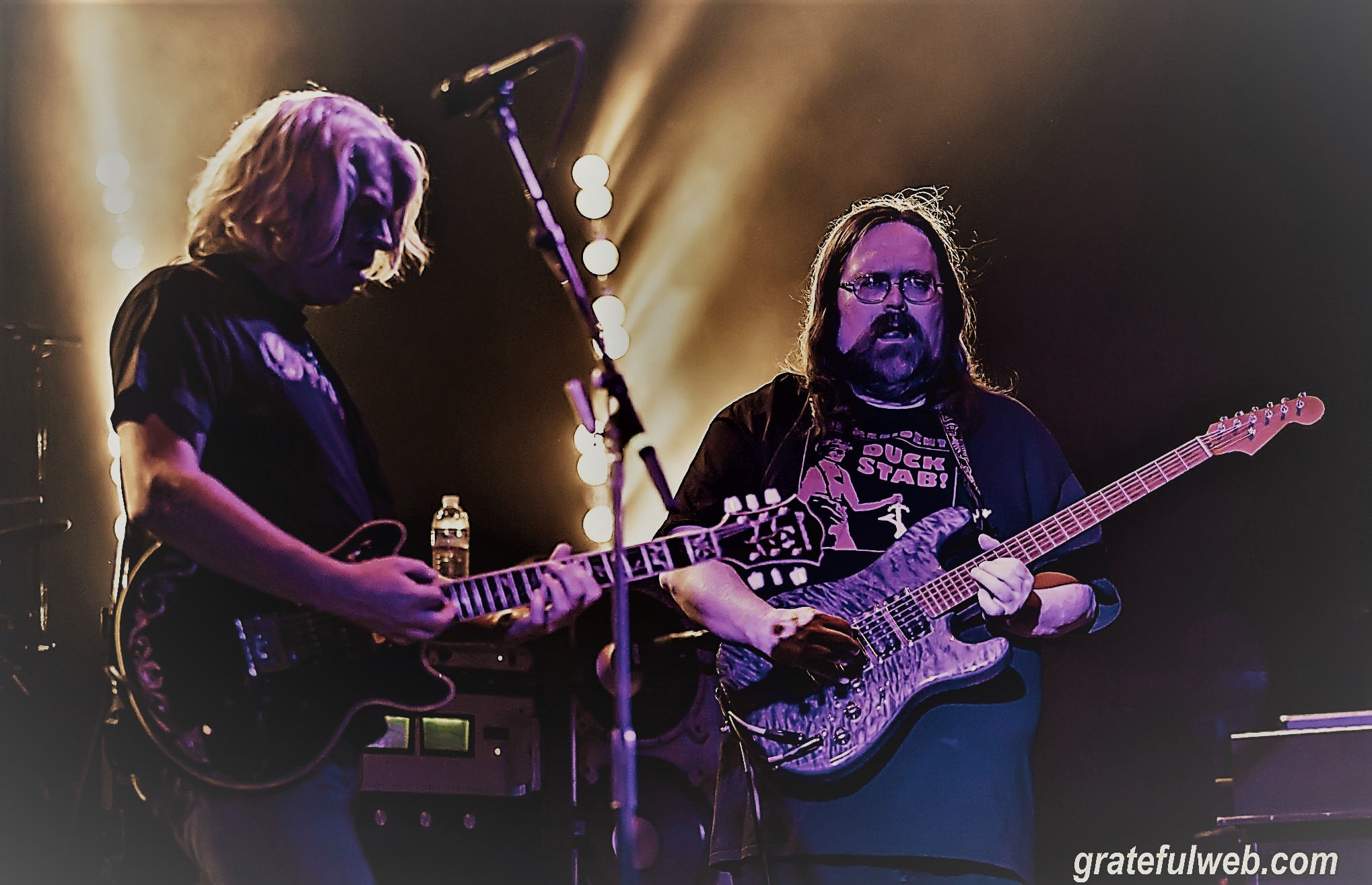
After a moderate break, DSO unleashed a white-hot second set reminiscent of late eighties, stadium Dead. Highlights included the opening “China Cat Sunflower>I Know You Rider,” a quintessential Grateful Dead “standard.” Encapsulating nearly everything the Dead is about in a single sequence of music, “China>Rider” also exemplifies the notion that “the music played the band.” They performed it at every point in their long career, through all their equipment changes, evolving sound systems, different venues and varied personnel. Regardless of circumstance, “China>Rider” rarely failed to achieve the group’s definitive “lift-off.” The song’s intrinsic qualities seemed to persist beyond the individual efforts or concerns of the band. At the McDonald, the song arrived on time again. DSO paid the fare and fans enjoyed a swirling, churning ride from “the eagle winged palace of the Queen Chinee” through the “cool Colorado rain.”
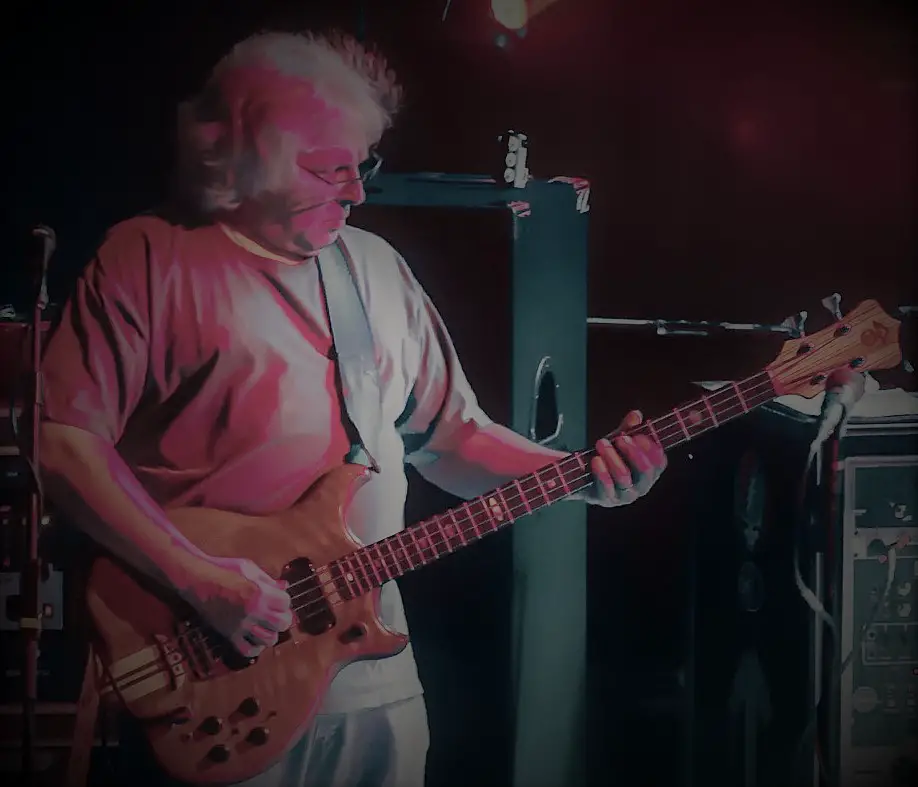
From one of the most played pieces in the GD songbook to one of the least, DSO surprised and delighted with a celestial “Unbroken Chain.” Yes! “Unbroken Chain,” the Loch Ness Monster, or Yeti of Grateful Dead songs, rarely seen or heard, though the legends still exist. One of the more complex compositions in the GD catalog, “Unbroken Chain” was penned, perhaps unsurprisingly, by Phil Lesh, with lyrics by Bobby Peterson. It appeared as a glistening gem on the 1974 album, From the Mars Hotel, and then vanished mysteriously, never performed live until the Dead unearthed it at a handful of shows on what became their final tour in 1995. Dark Star Orchestra’s “Unbroken Chain” enveloped the room. It permeated the atmosphere and unfurled luminously over the audience, sparkling like a constellation in a wilderness sky. Bassist Skip Vangelas played the part of Lesh perfectly. His vocals, supported with harmonies from Mackey and the rest of the group, glided weightlessly through the song’s dreamscape of ambient sounds. The fierce instrumental interplay of the entire group during the song’s climactic jam conquered cities and melted minds. “Unbroken Chain” was a freaking beast, a masterclass of magnificence. The song’s mystical meaning held everything—the Dead, DSO, the Heads, the cosmos, everything—in a comforting, circular affirmation: “Unbroken chain of you and me.”
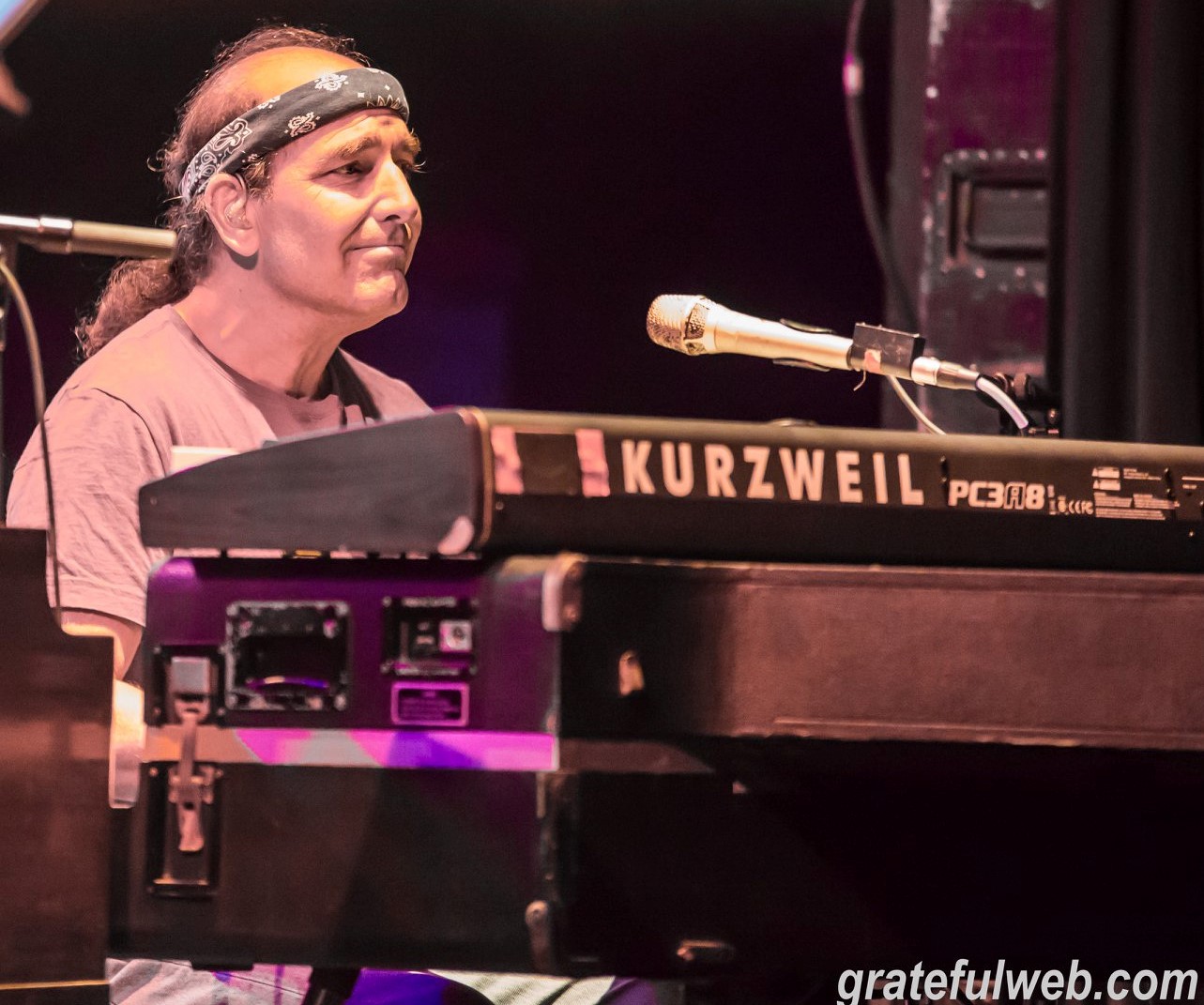
This spacey sentiment segued seamlessly into a smoldering “Keep on Growing,” the Derek and the Dominoes cut covered only four times by the Grateful Dead in 1985-86. DSO’s vocals, enhanced by Mackey’s contributions, were consistently strong throughout the evening and “Keep on Growing” was another fine example. Baracco mimicked the soulful style of the late Brent Mydland with support from Vangelas, and he put his phat Hammond organ to work. A sweaty, spongy, howler, “Keep on Growing” gave the crowd a chance to groove again after the probing think piece, “Unbroken Chain.” Round, rubbery notes slid off Mattson’s guitar and bounced from the floorboards through the ceiling. The boogie was on. Mattson kept finding hair-raising peaks and then reaching even higher, defying gravity with an ecstatic, reverse cascade of sound. The song’s hopeful lyric, “you’re gonna be alright boy,” suggests the “life after Dead” scene evolves eternal: “’Cause time is gonna change us, Lord, and I know it's true; our love is gonna keep on glowing and growing, and it's all we gotta do—keep on growing.”
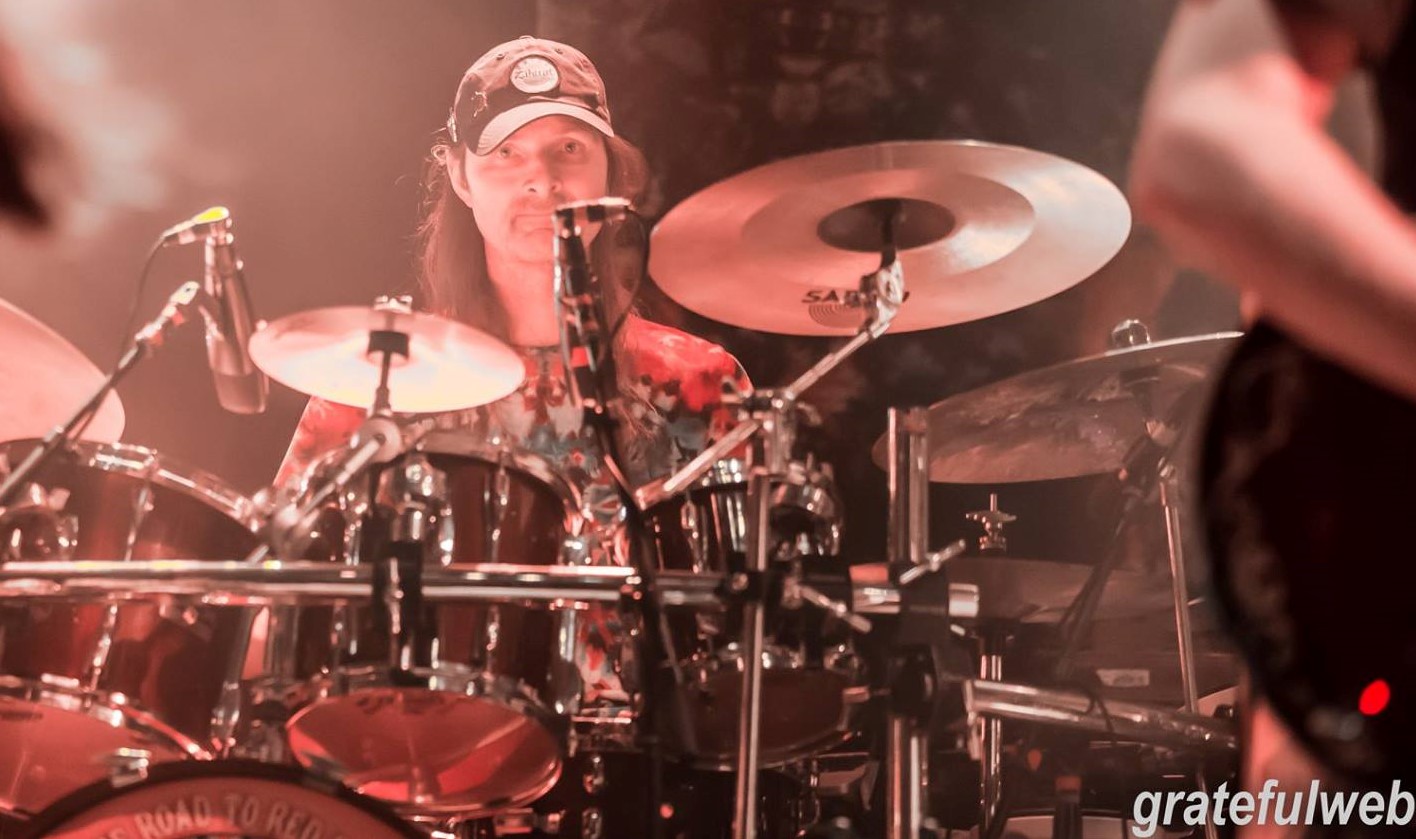
DSO turned mildly topical after their “Drums>Space” segment, which felt appropriate given the strained political climate of the times. Bob Dylan’s “All Along the Watchtower” screamed of discontent, “there must be some kind of way outta here,” and impending doom, “the hour’s getting late.” Mattson again flexed and scorched earth before “New Speedway Boogie” strolled defiantly out of the fuming remains of “Watchtower.” While not overtly political, “New Speedway Boogie” was the Dead’s subversive response to social criticism following the Altamont Speedway disaster in 1969. The Dead always scorned and shunned the notion of leadership. “New Speedway Boogie” is typically uninterested in offering any directives. Hunter’s lyrics assume a righteous, somewhat detached posture of passivity. He expresses resentment for regressive, negative thinking, “please don’t back up the track,” but he questions dictatorial pronouncements, “some say better run away/others say better stand still.” Ultimately, “New Speedway Boogie” ends without specific answers and instead only achingly pleads, “one way or another this darkness got to give.” DSO’s striking version spoke to the existent angst shared by many in the socially conscious Eugene crowd. The song simply brought the house together, not so much in a mutual understanding, but rather a common need.
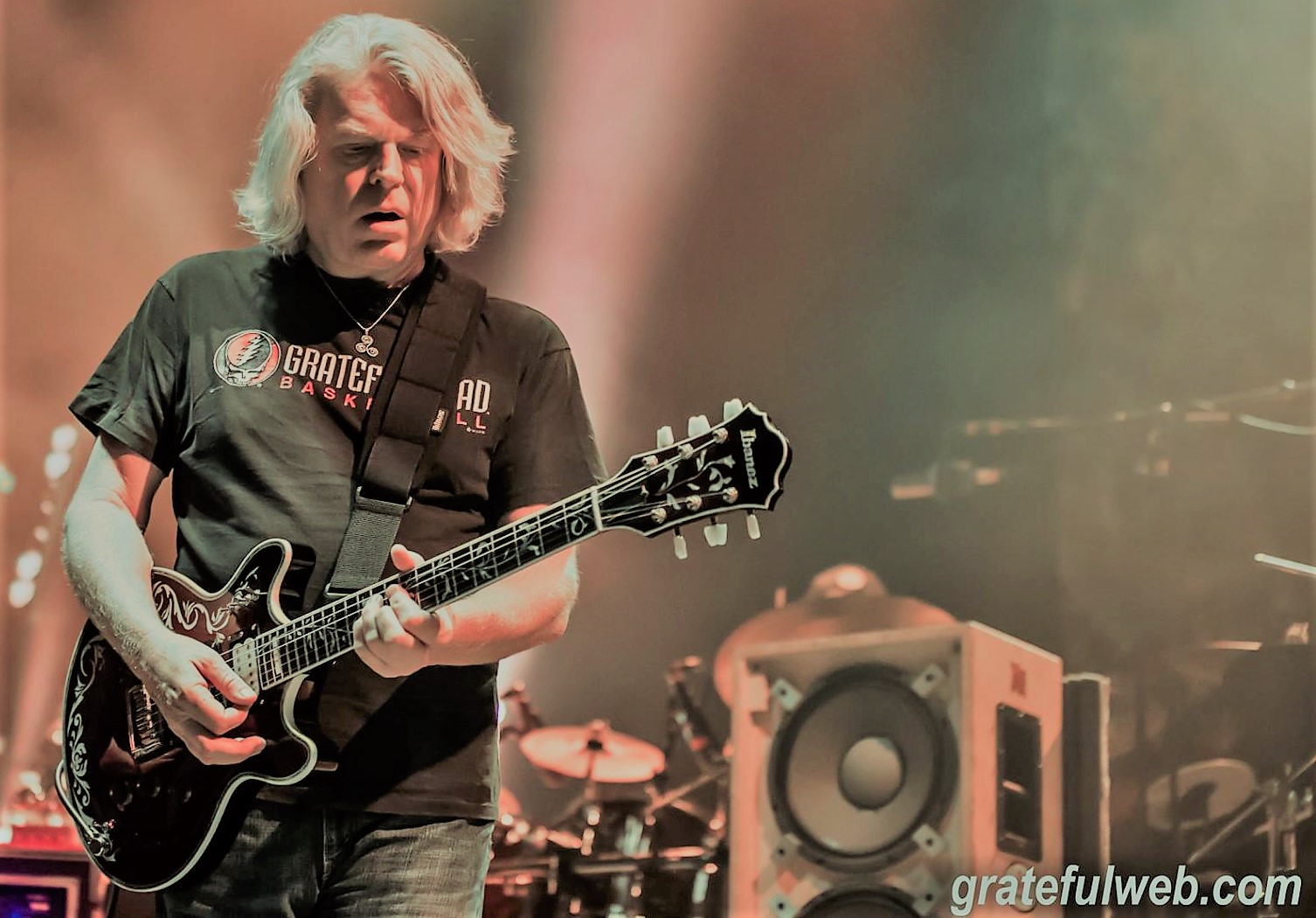
Dark Star Orchestra magically produced two sets of Grateful Dead music last Monday night and accurately evoked the originators’ most endearing qualities. DSO’s decision to fly free, crafting their own “elective” show, resulted in several satisfying surprises. By combining at least two distinct, discernible styles of Dead with their own creative energy, they provided a truly unique listening experience. They delivered an exciting, brilliantly played concert characteristically rippling with suggestive “meaning.” Glistening, wide-eyed revelers exited the theater gratefully restored. “Everybody’s dancin’… and the band keeps playing on!”





